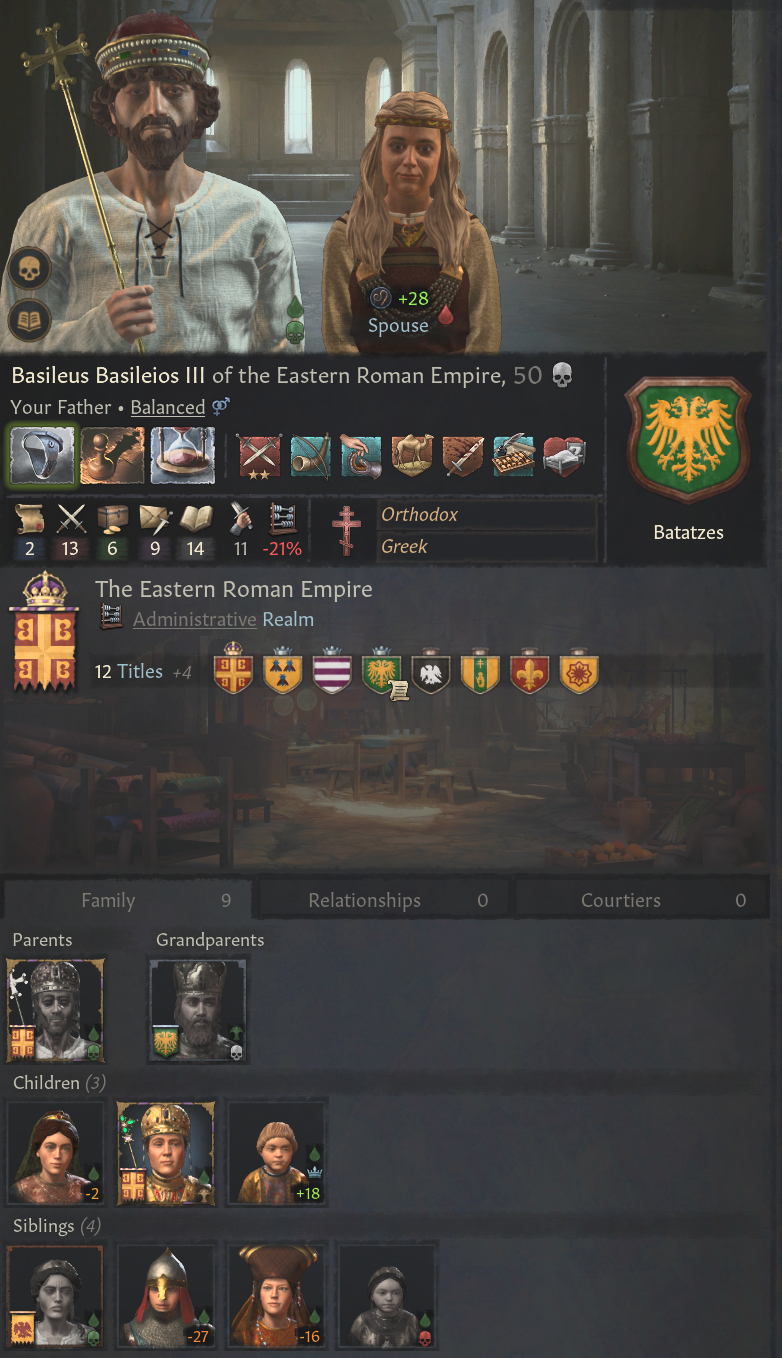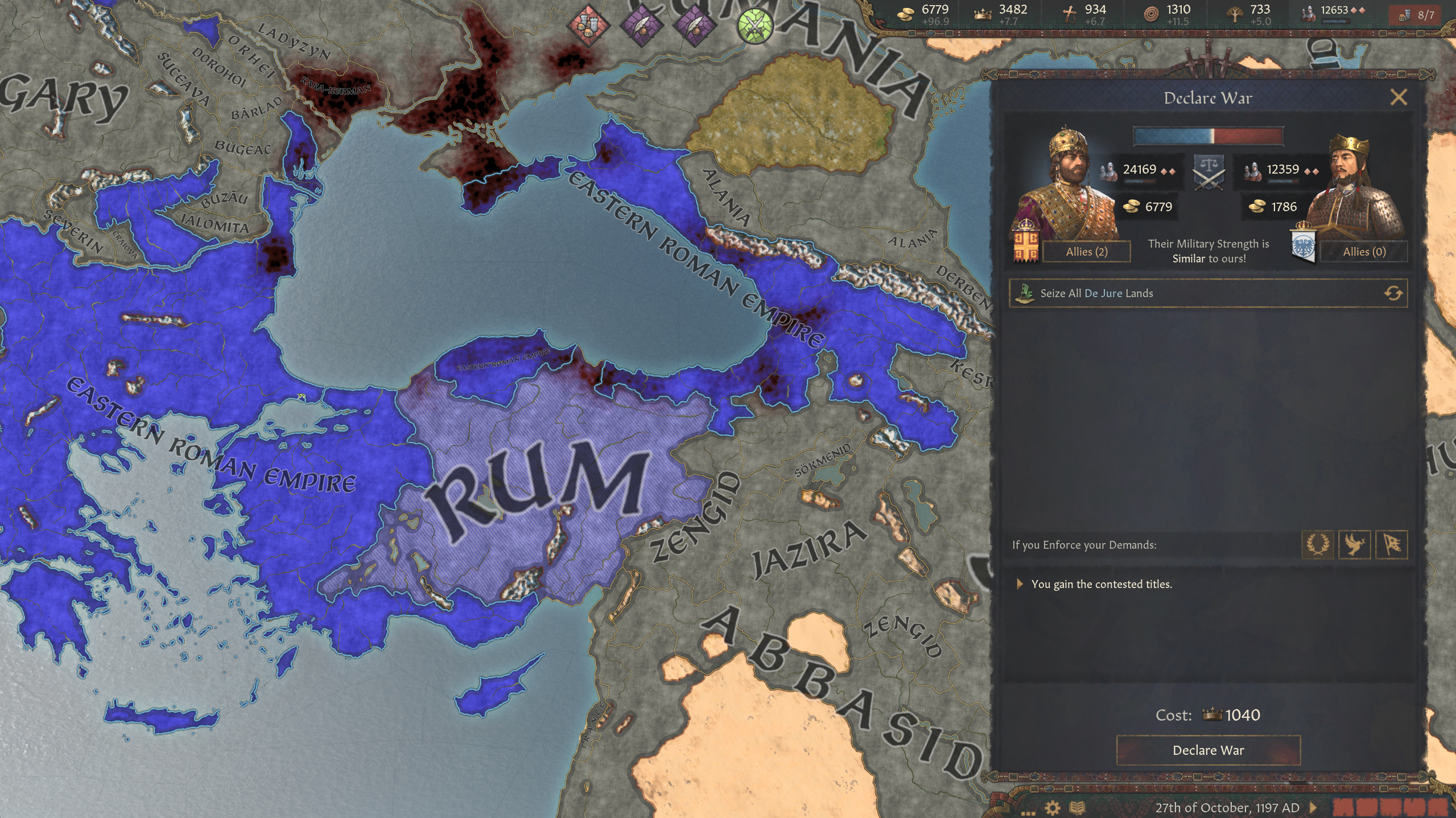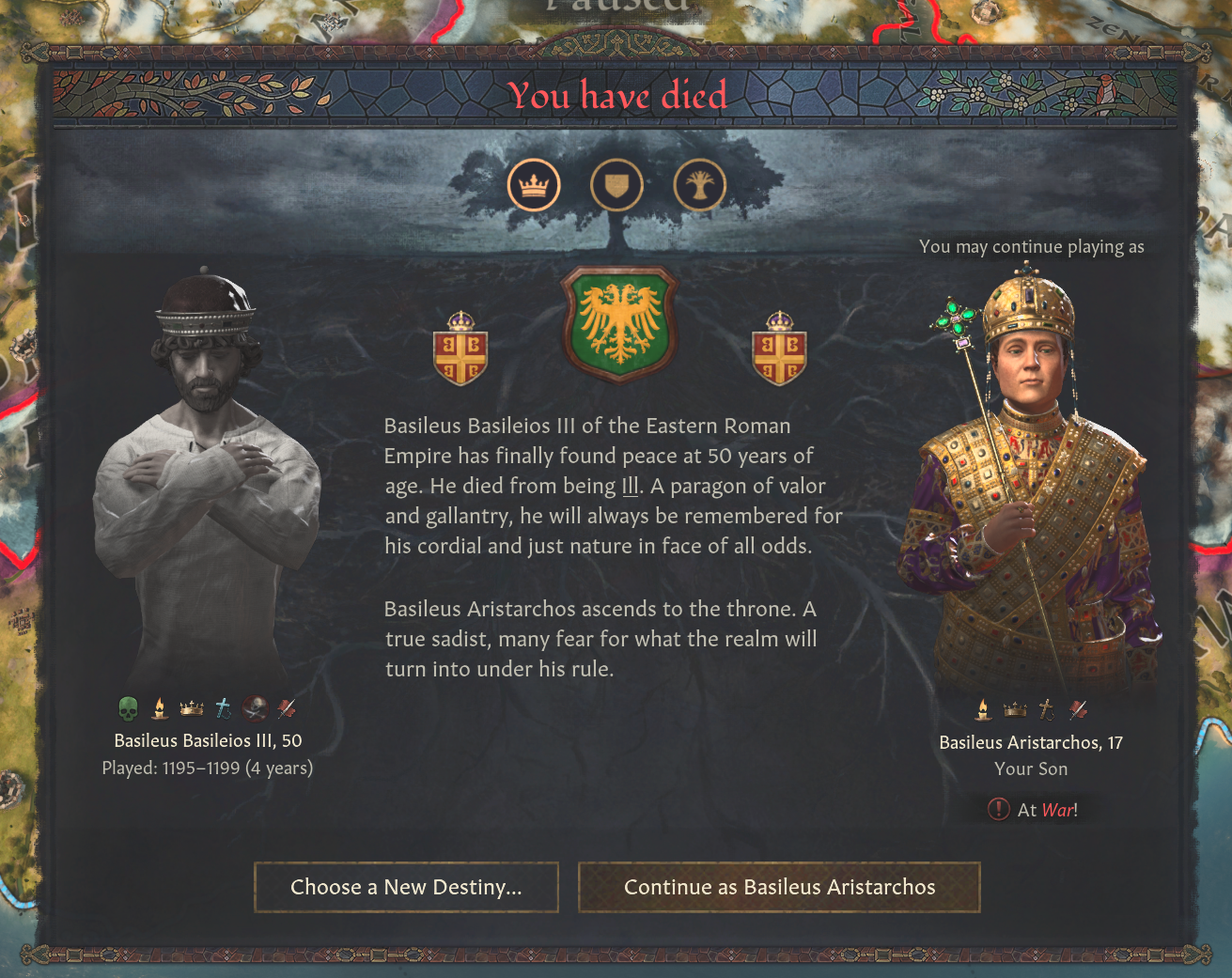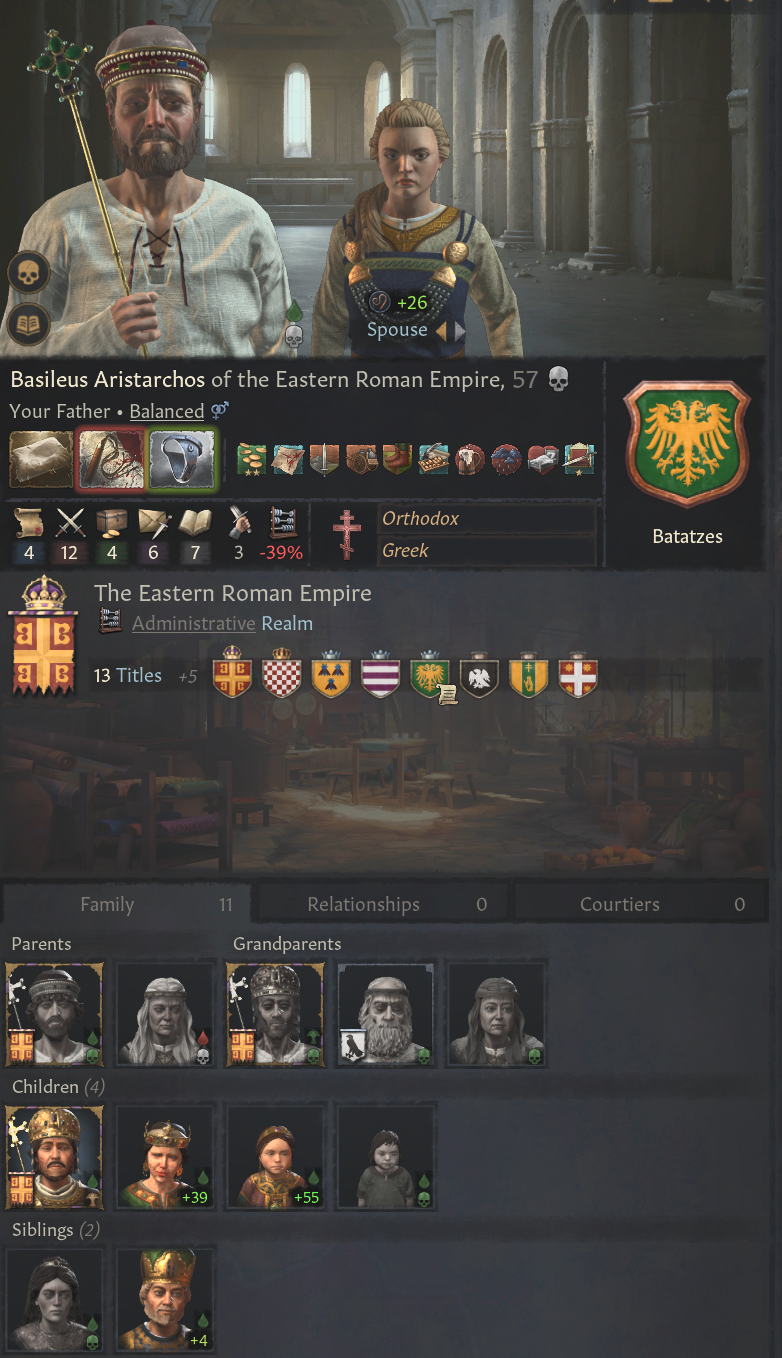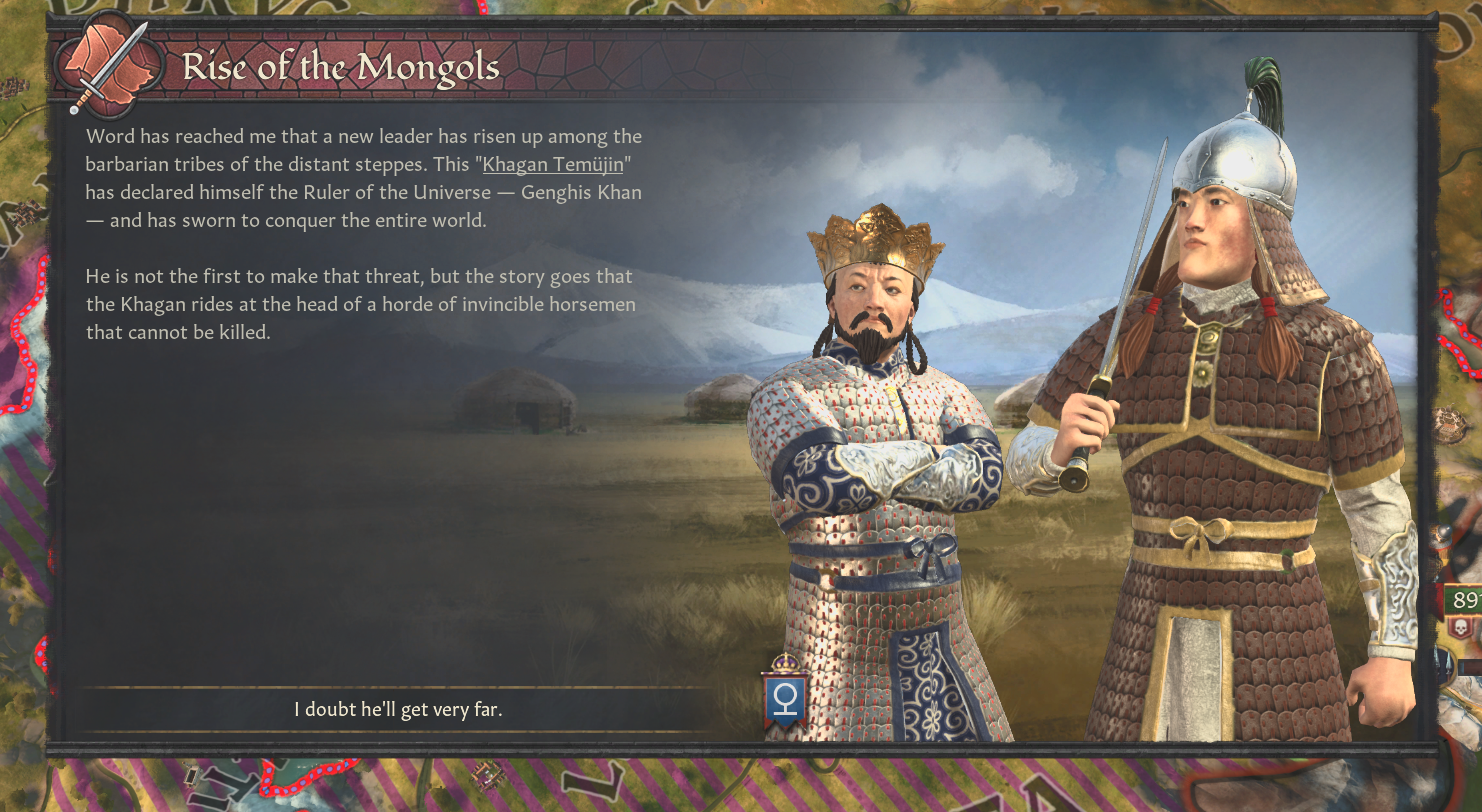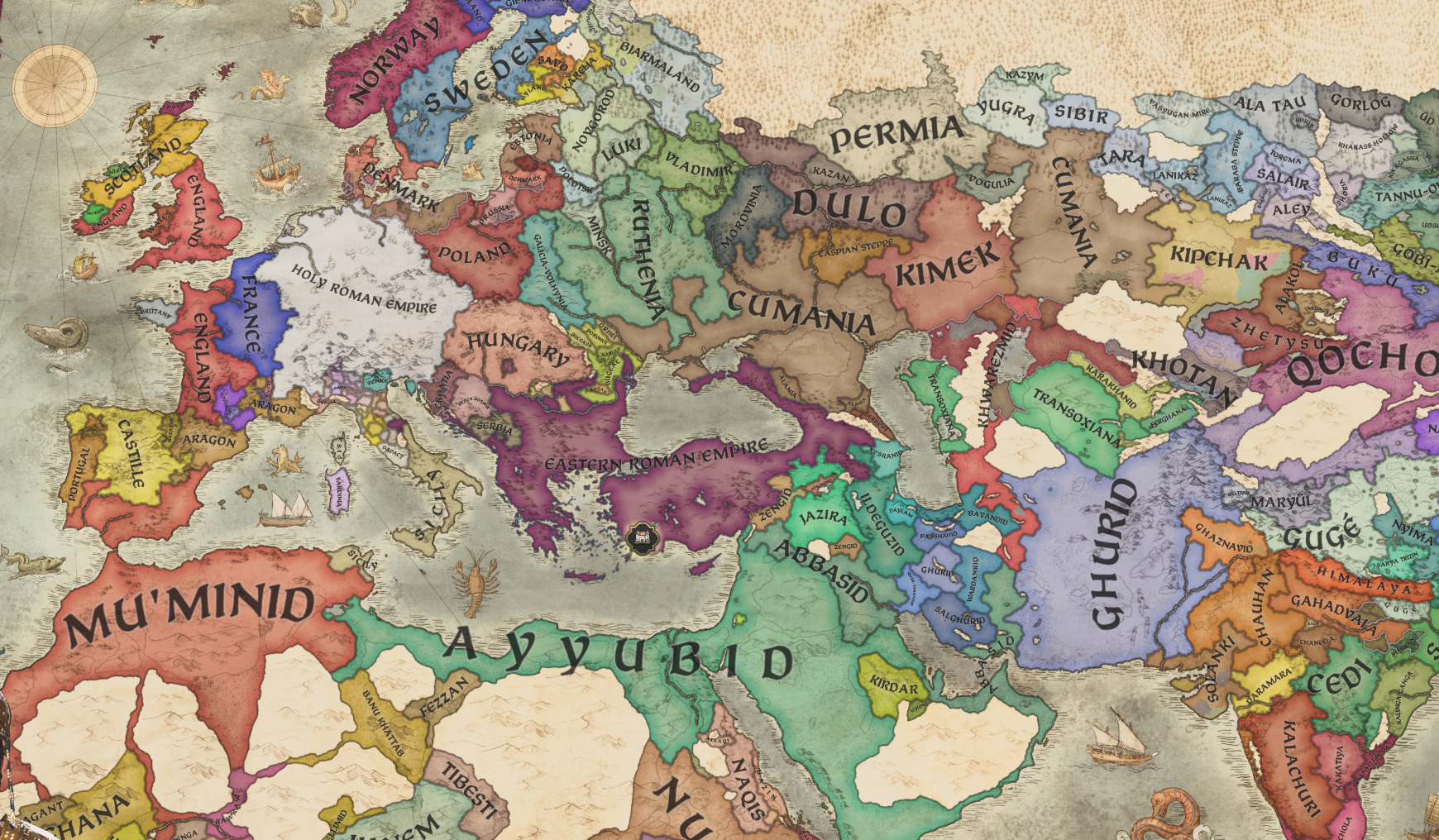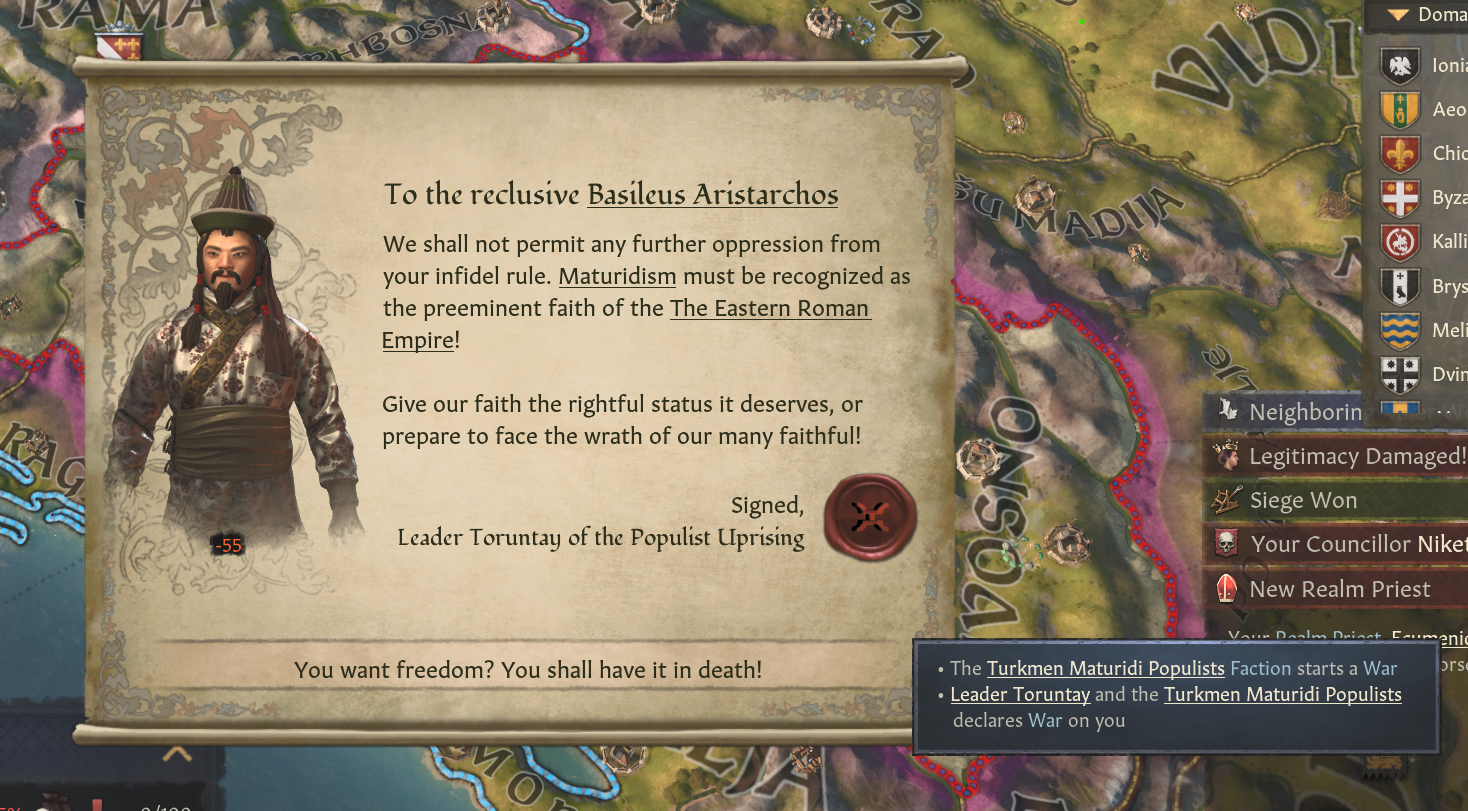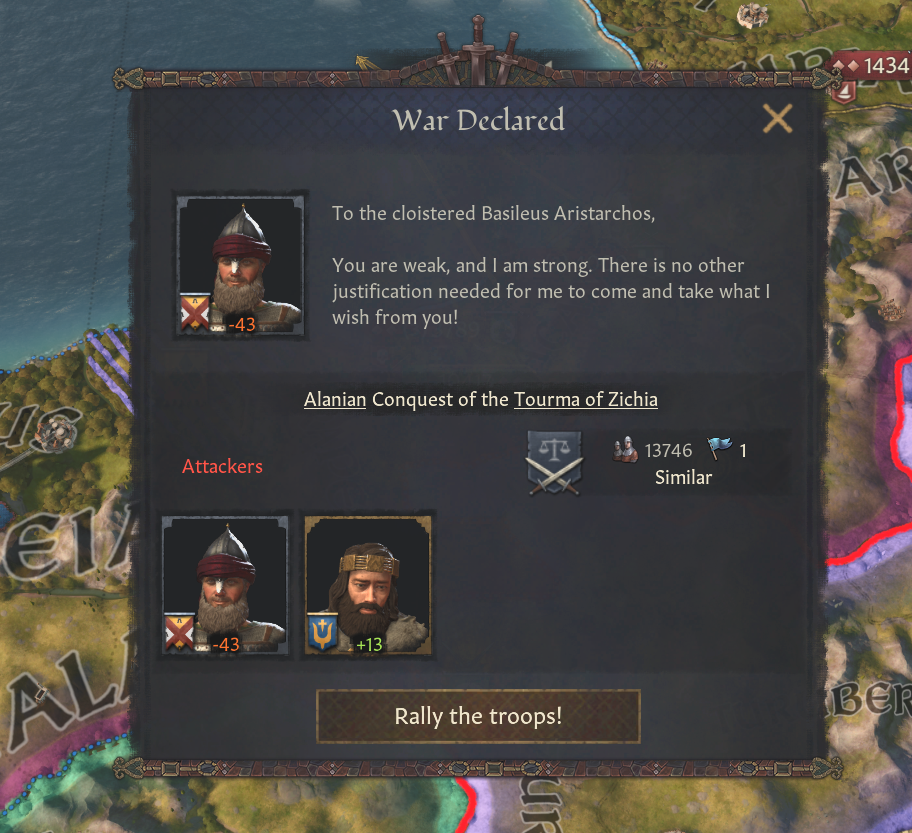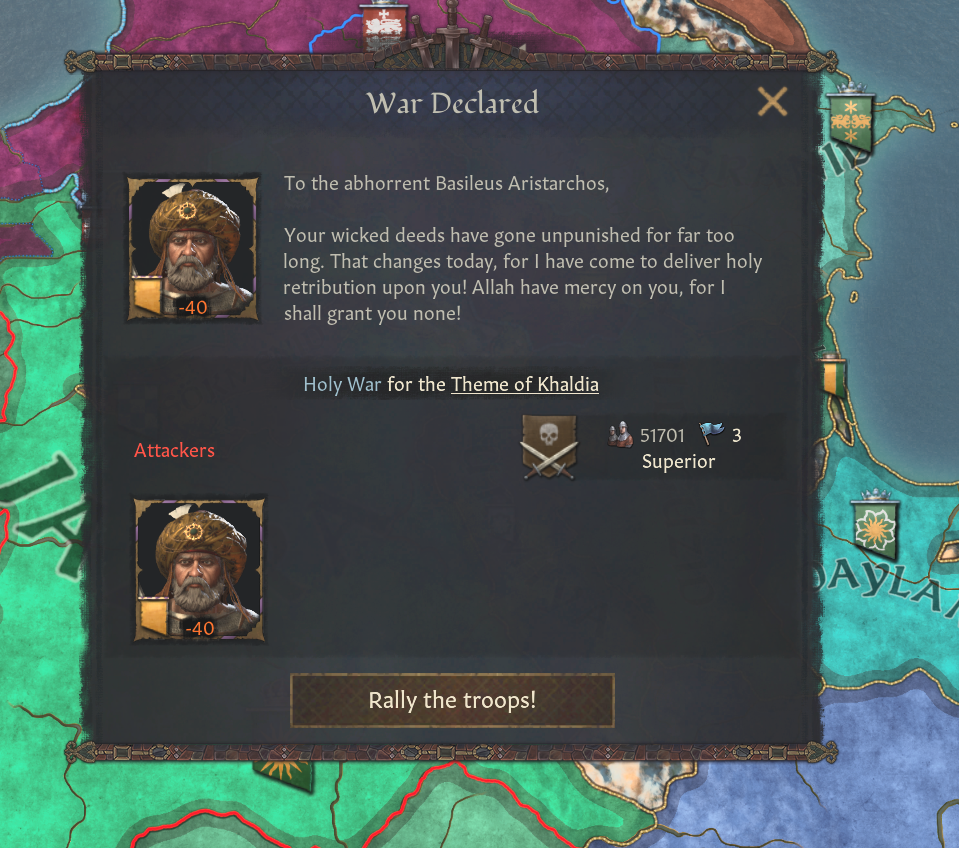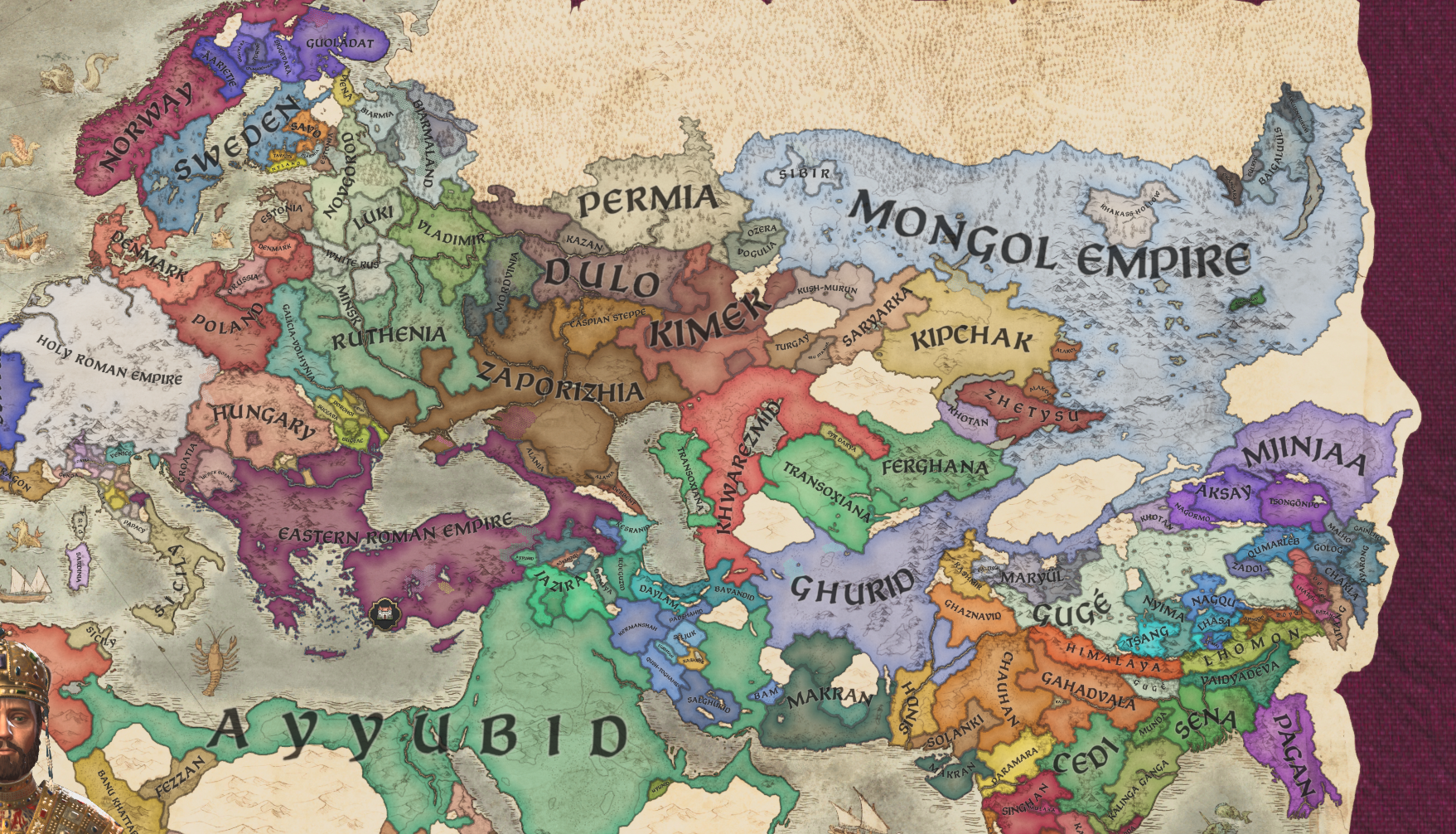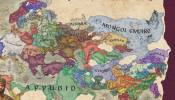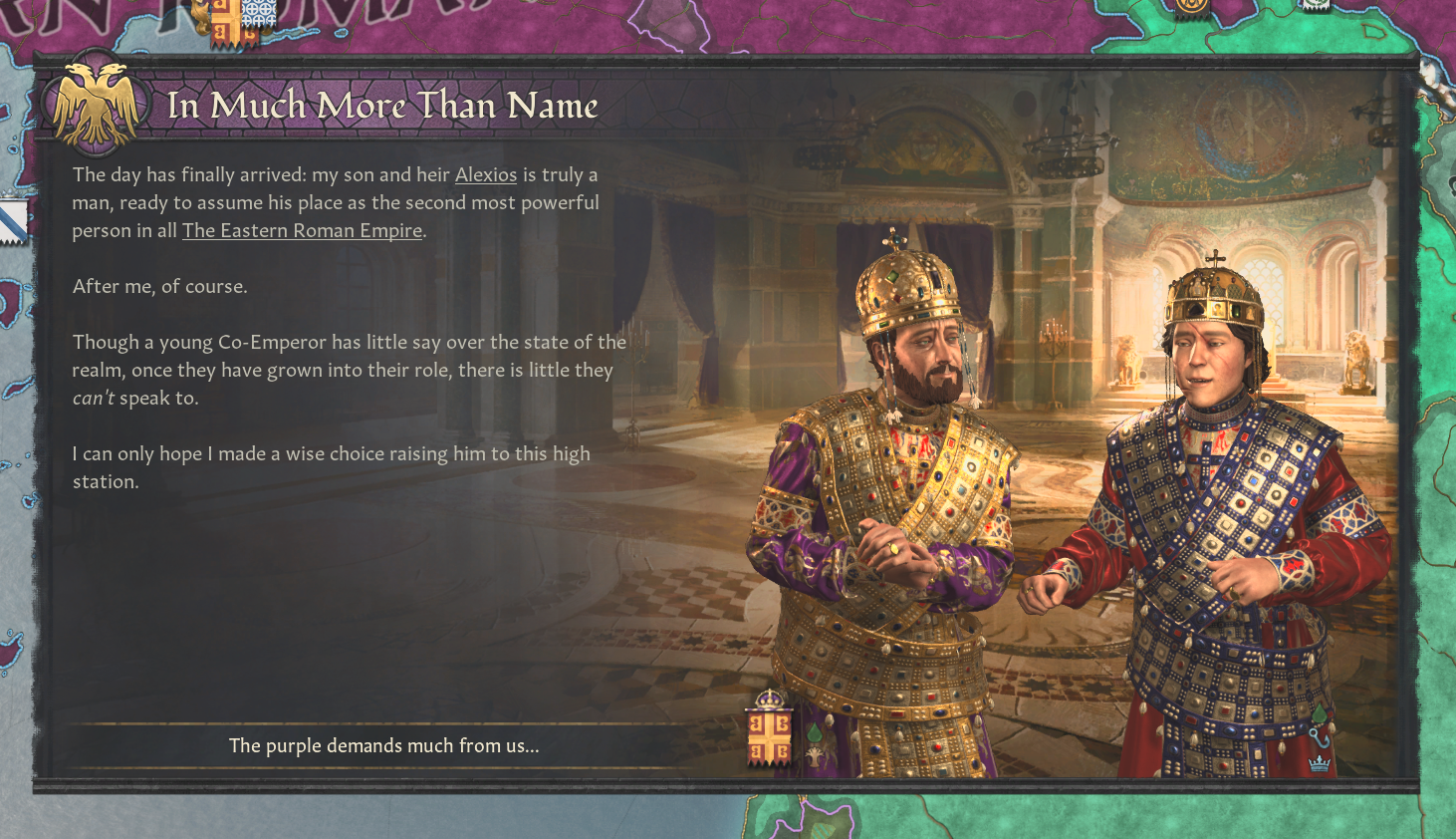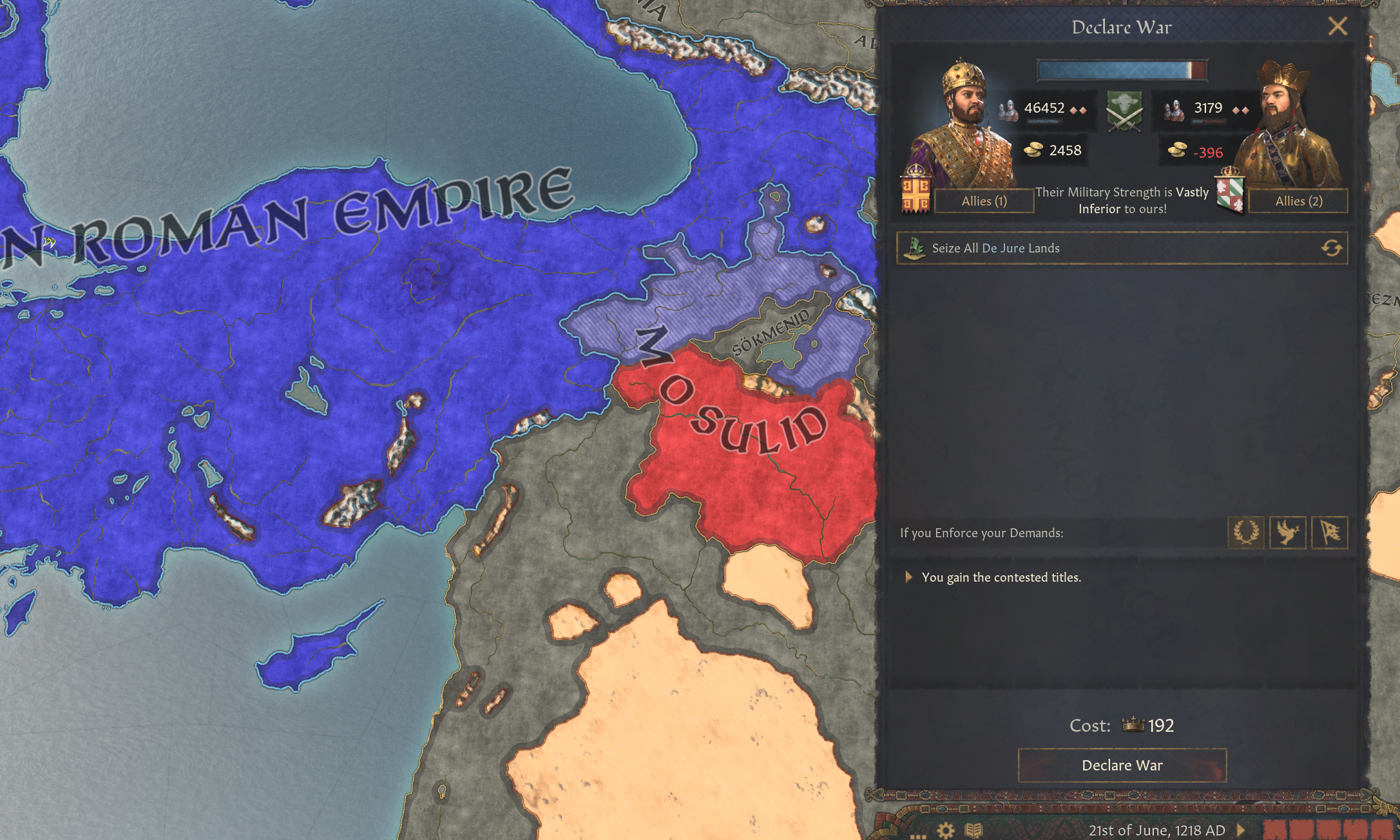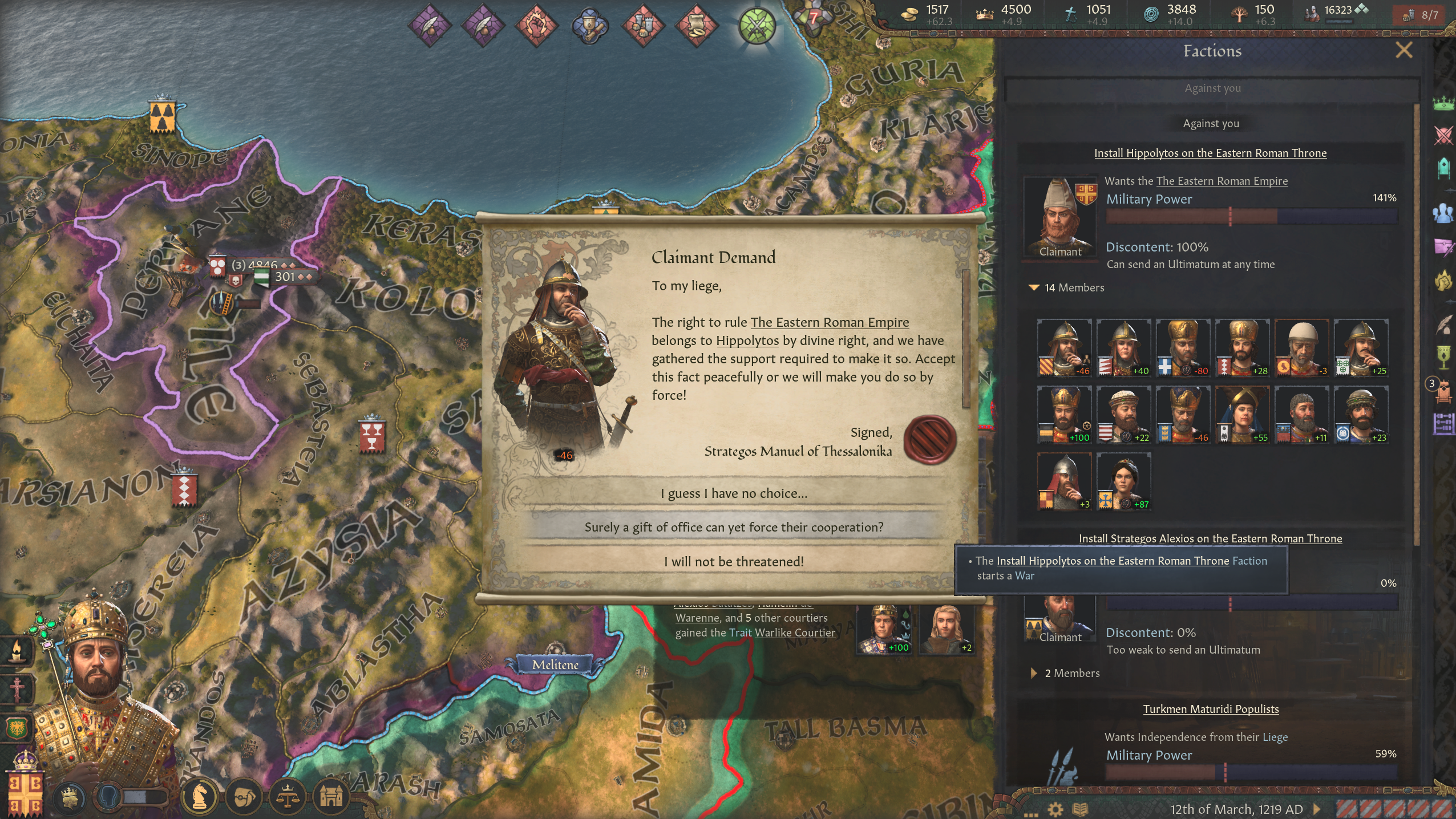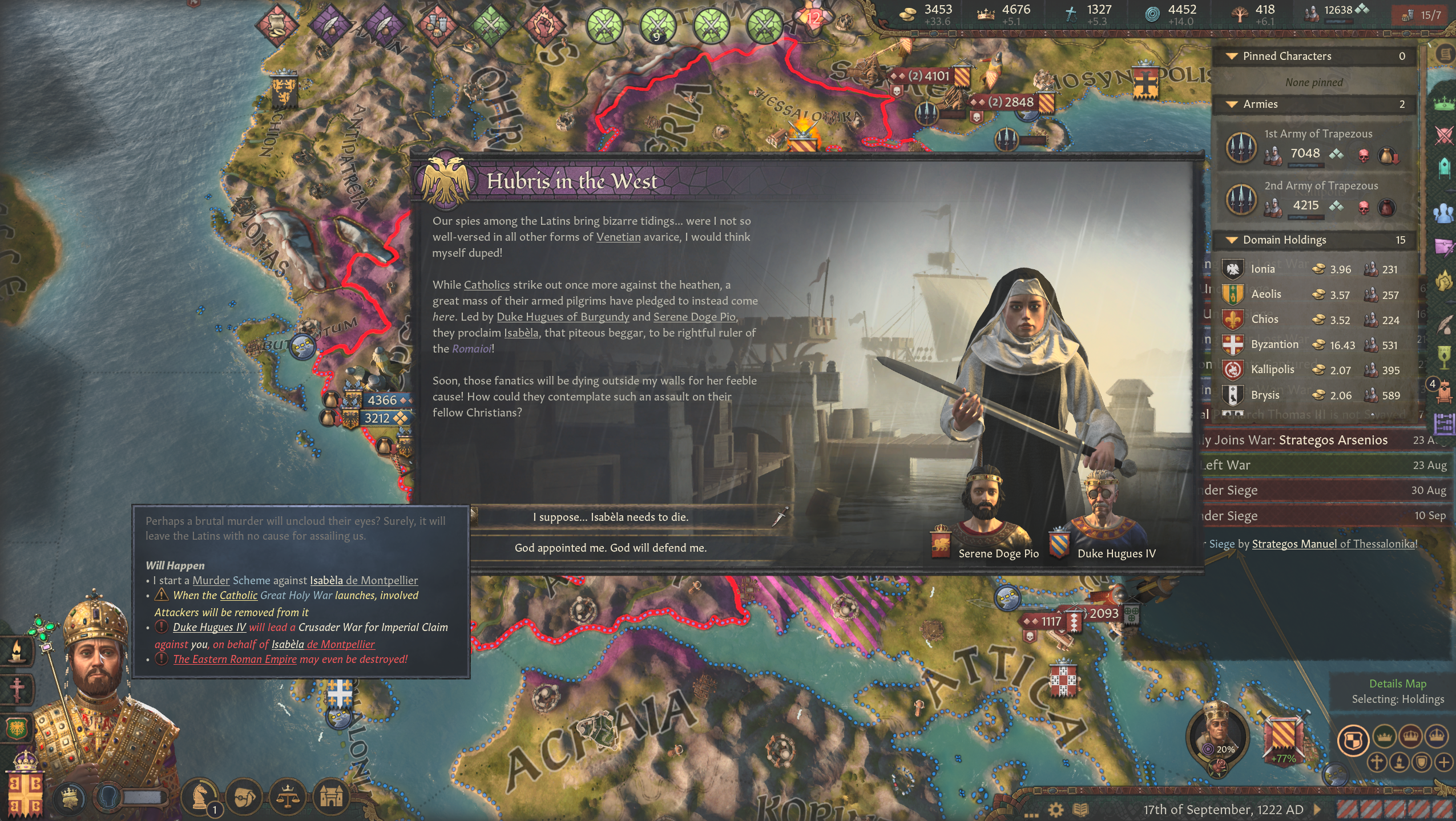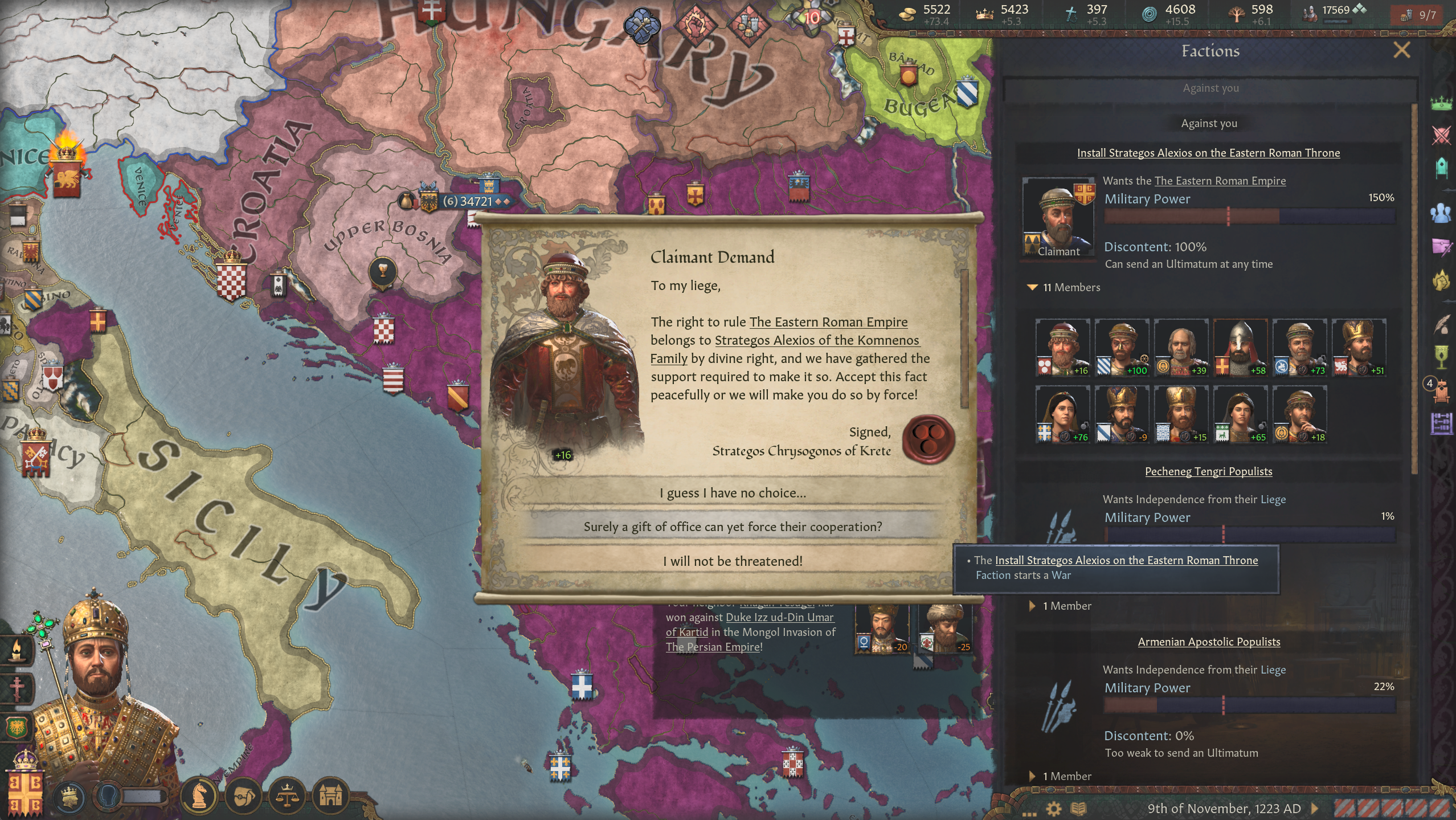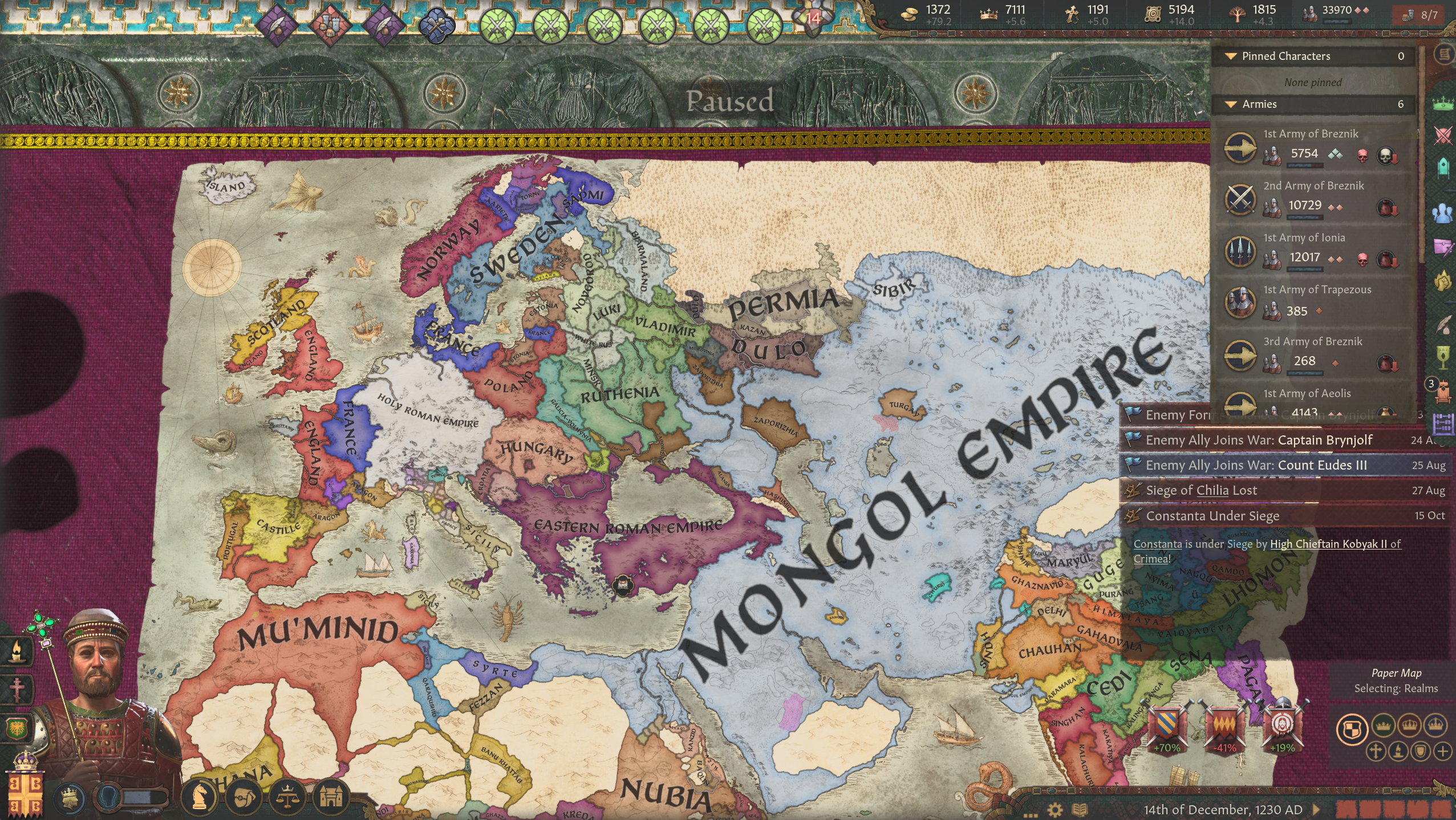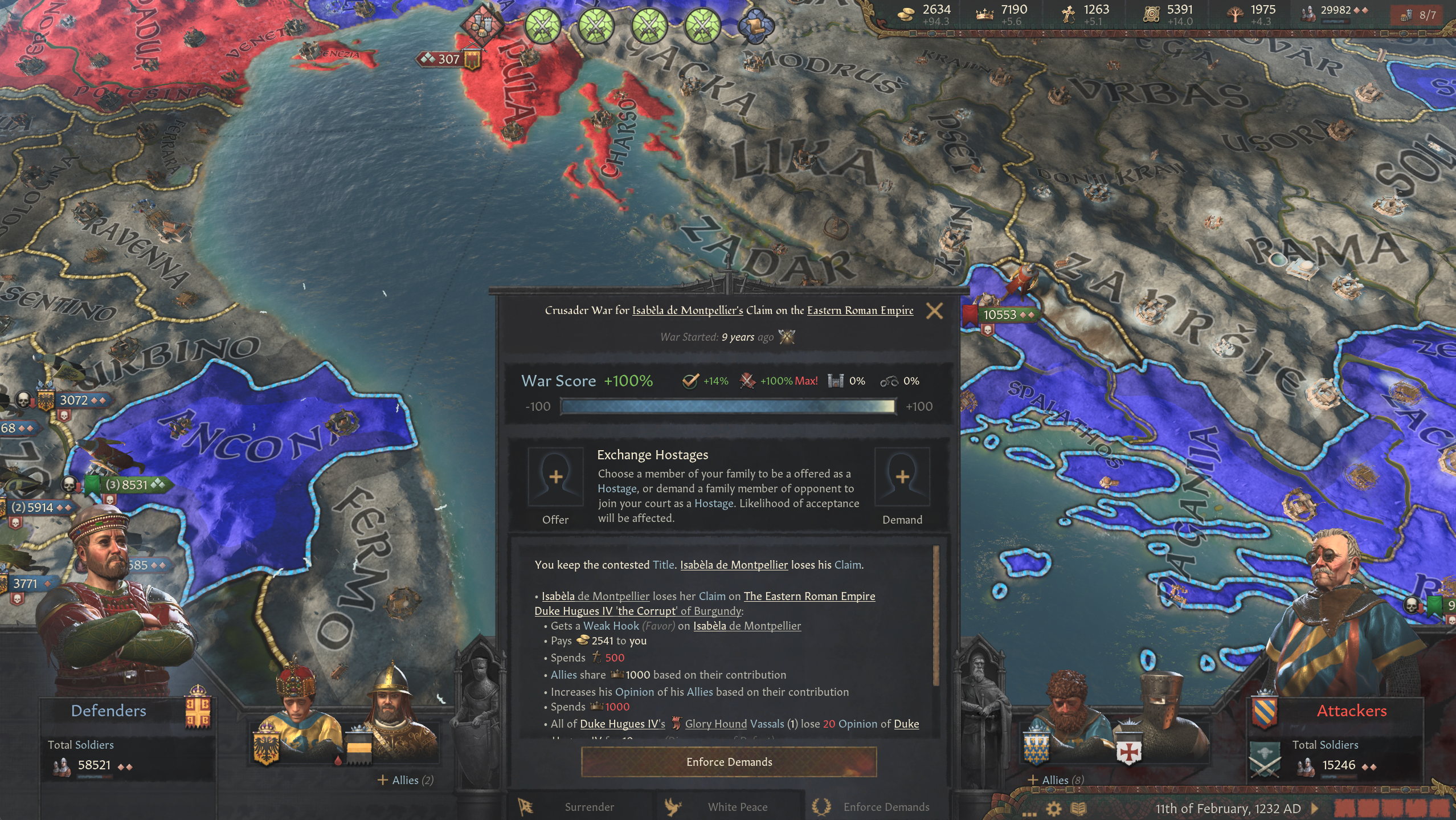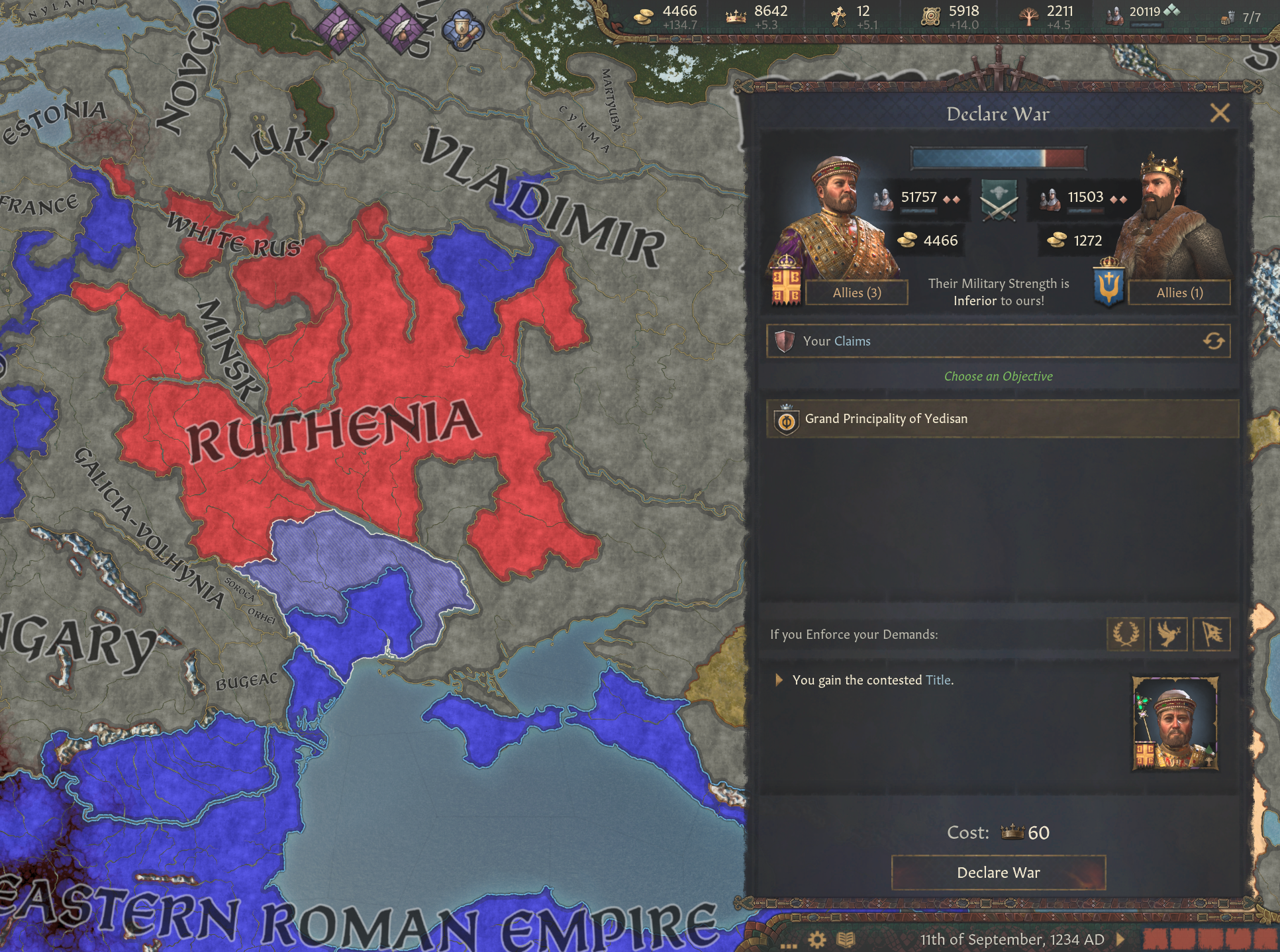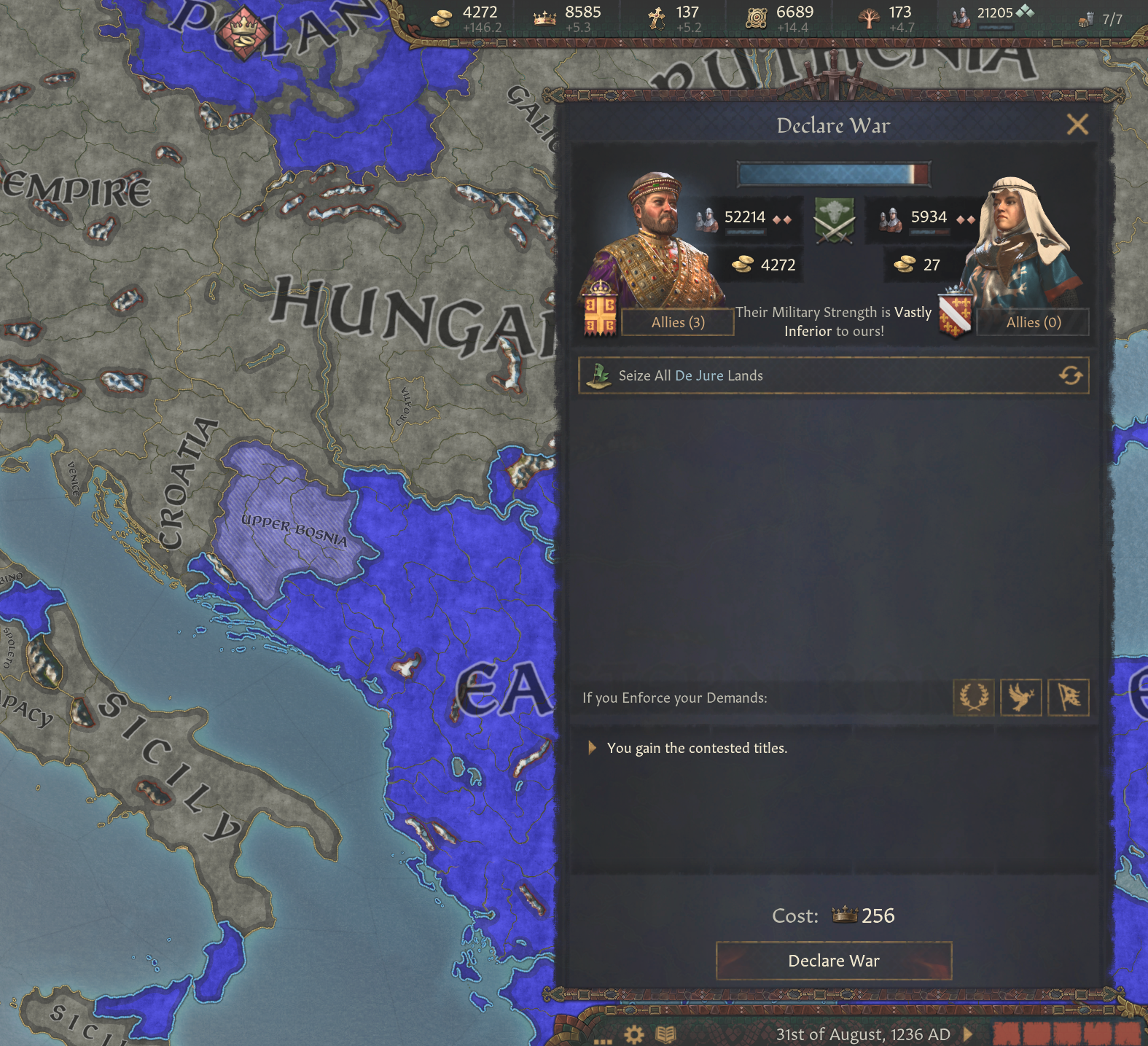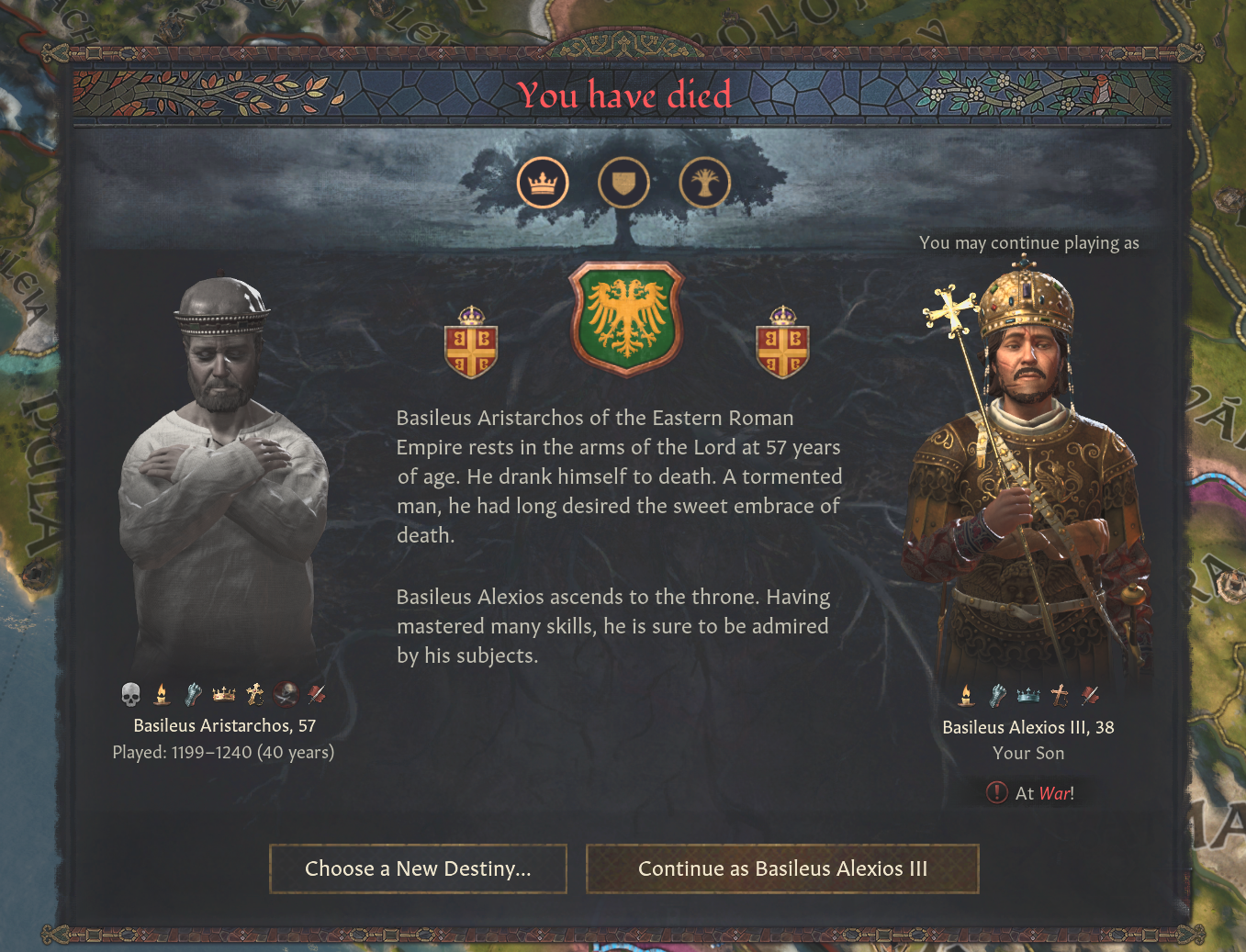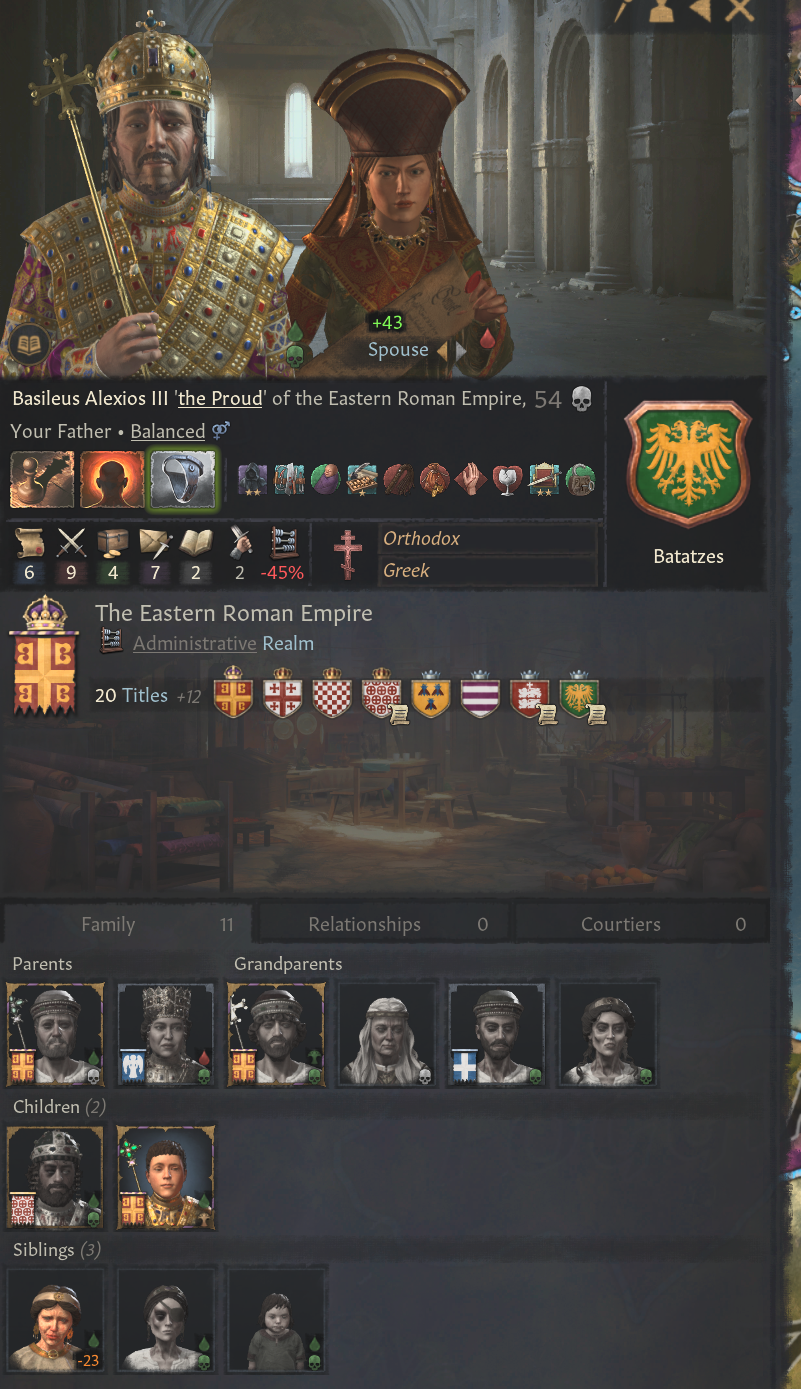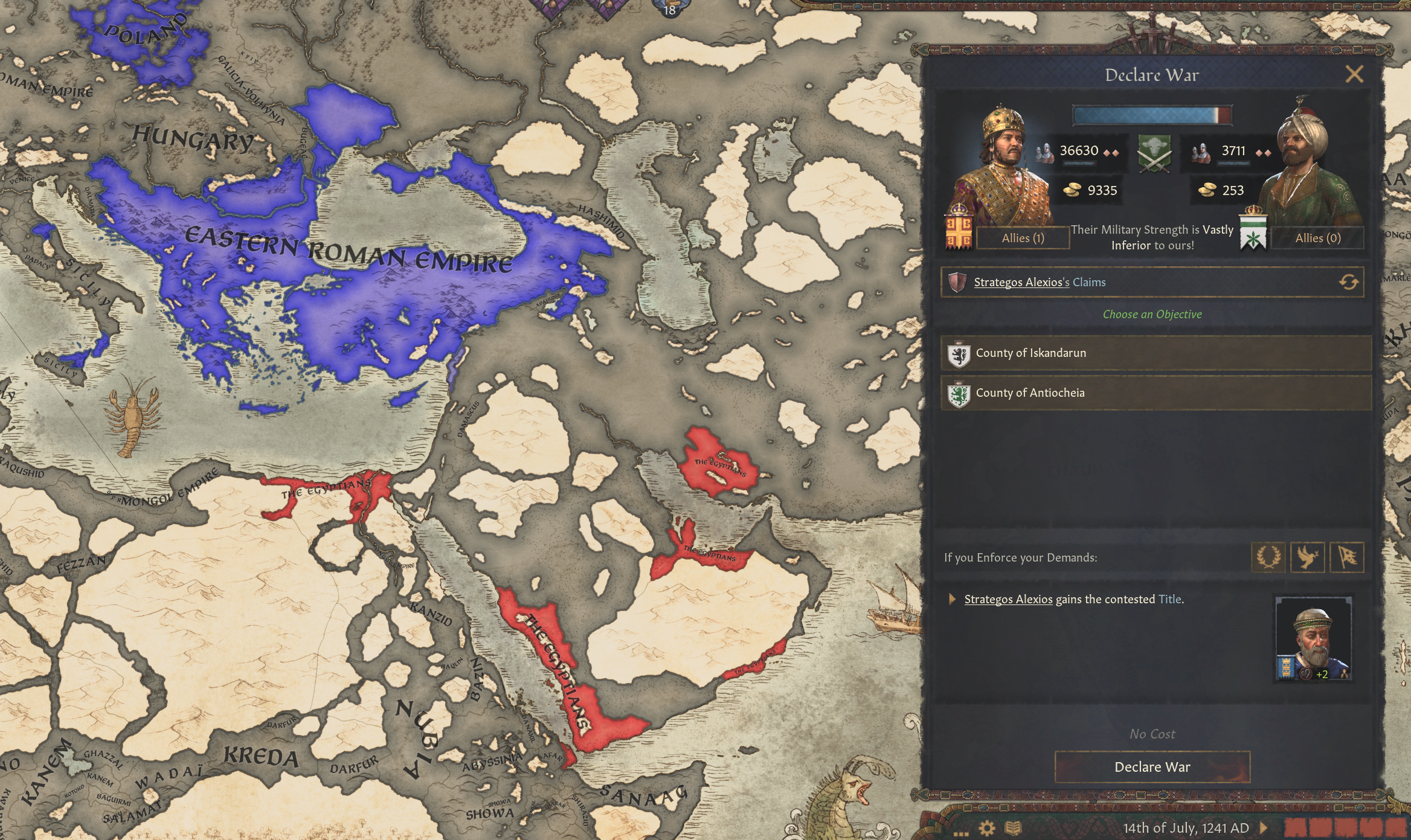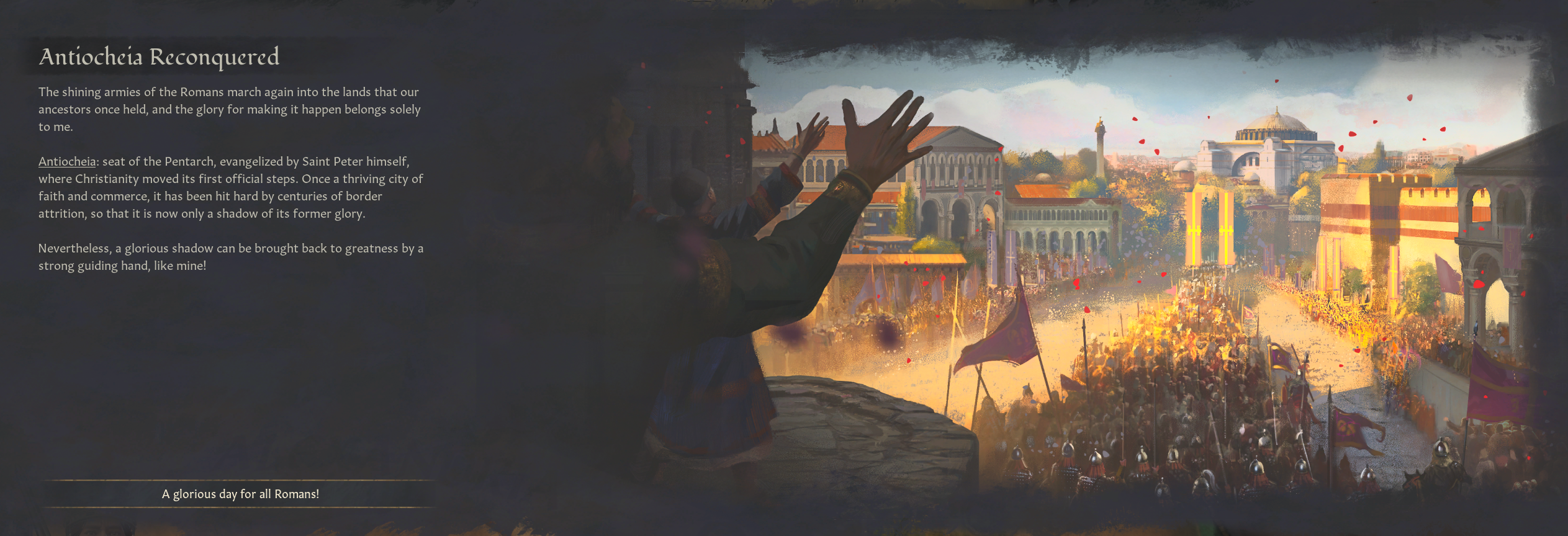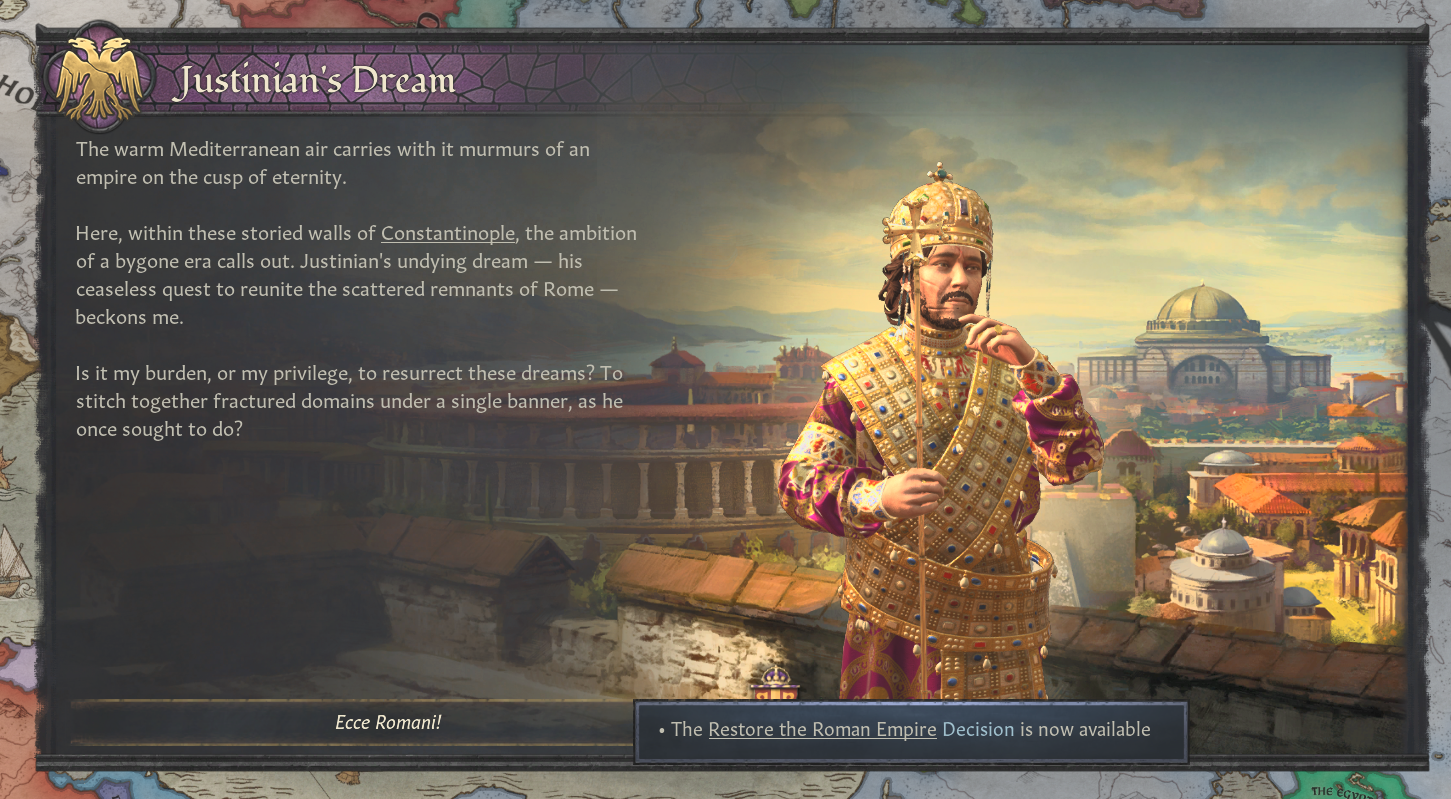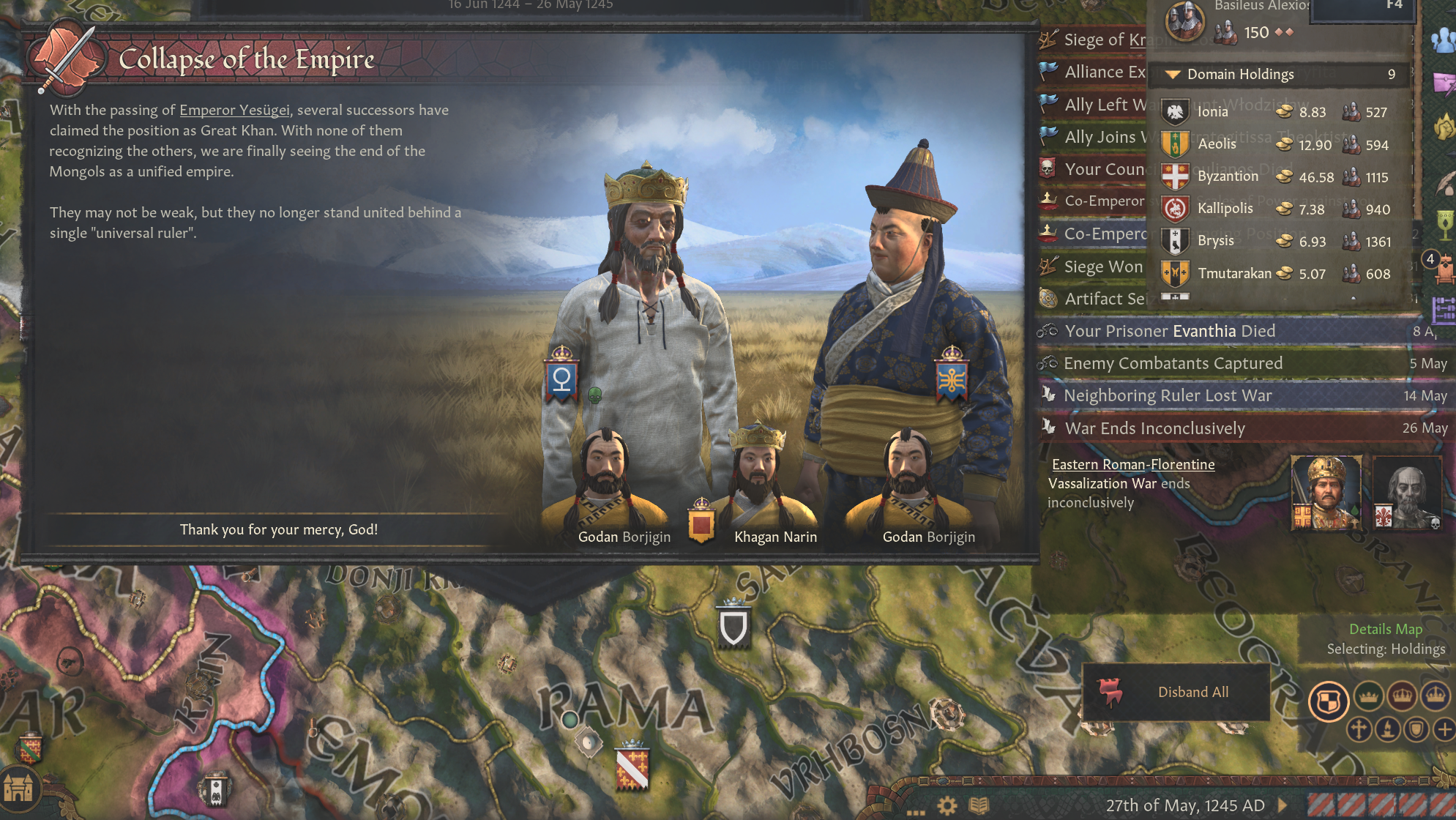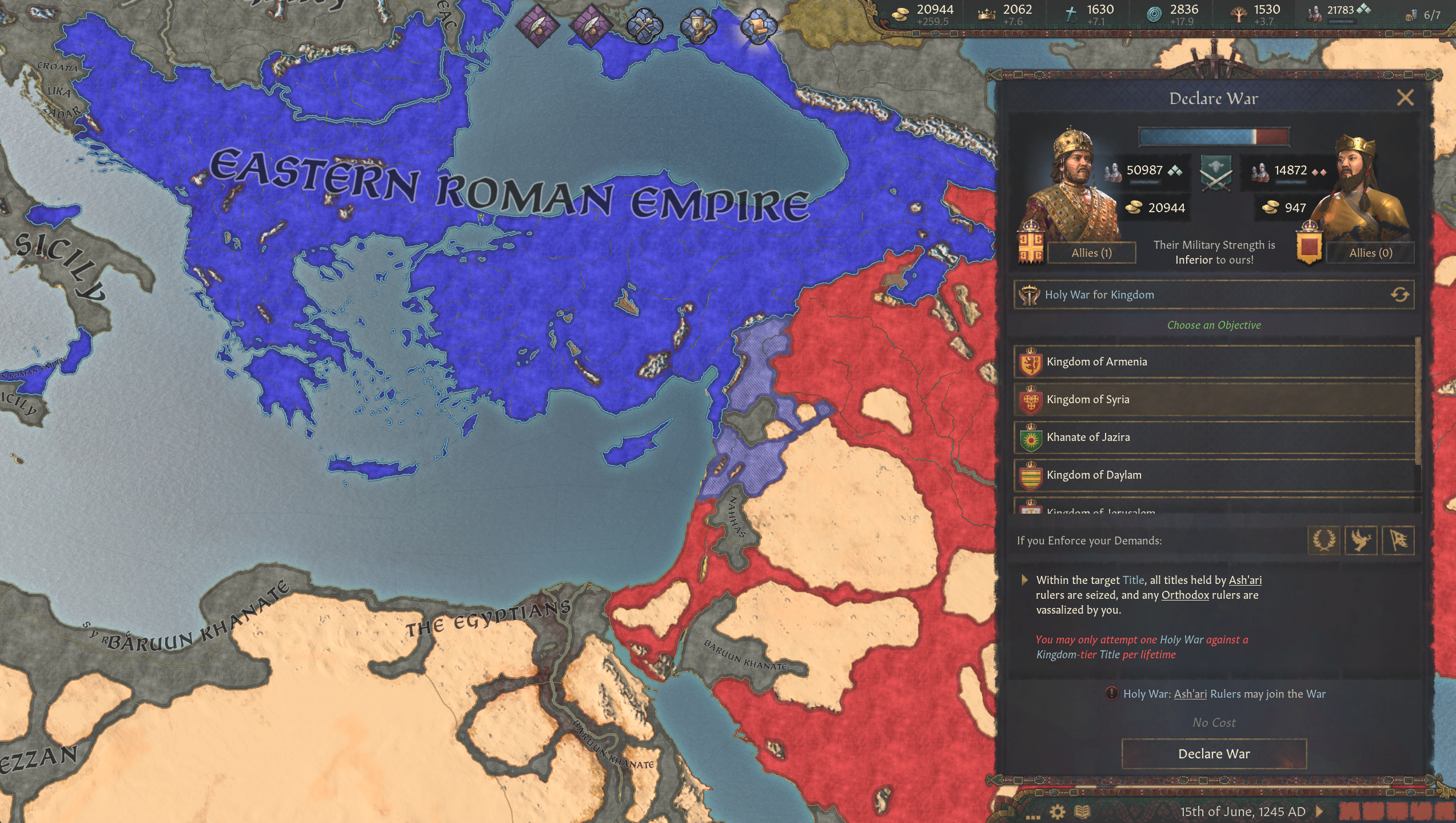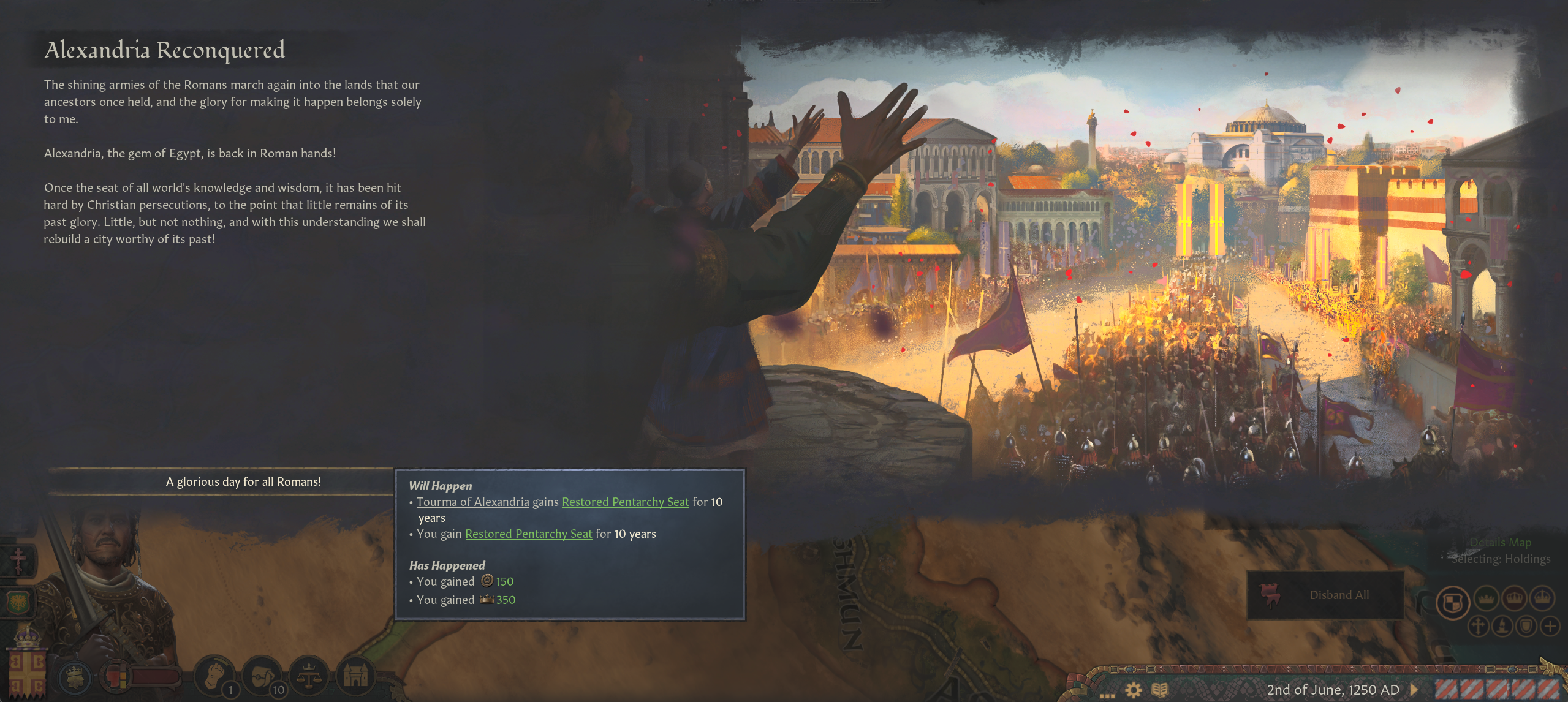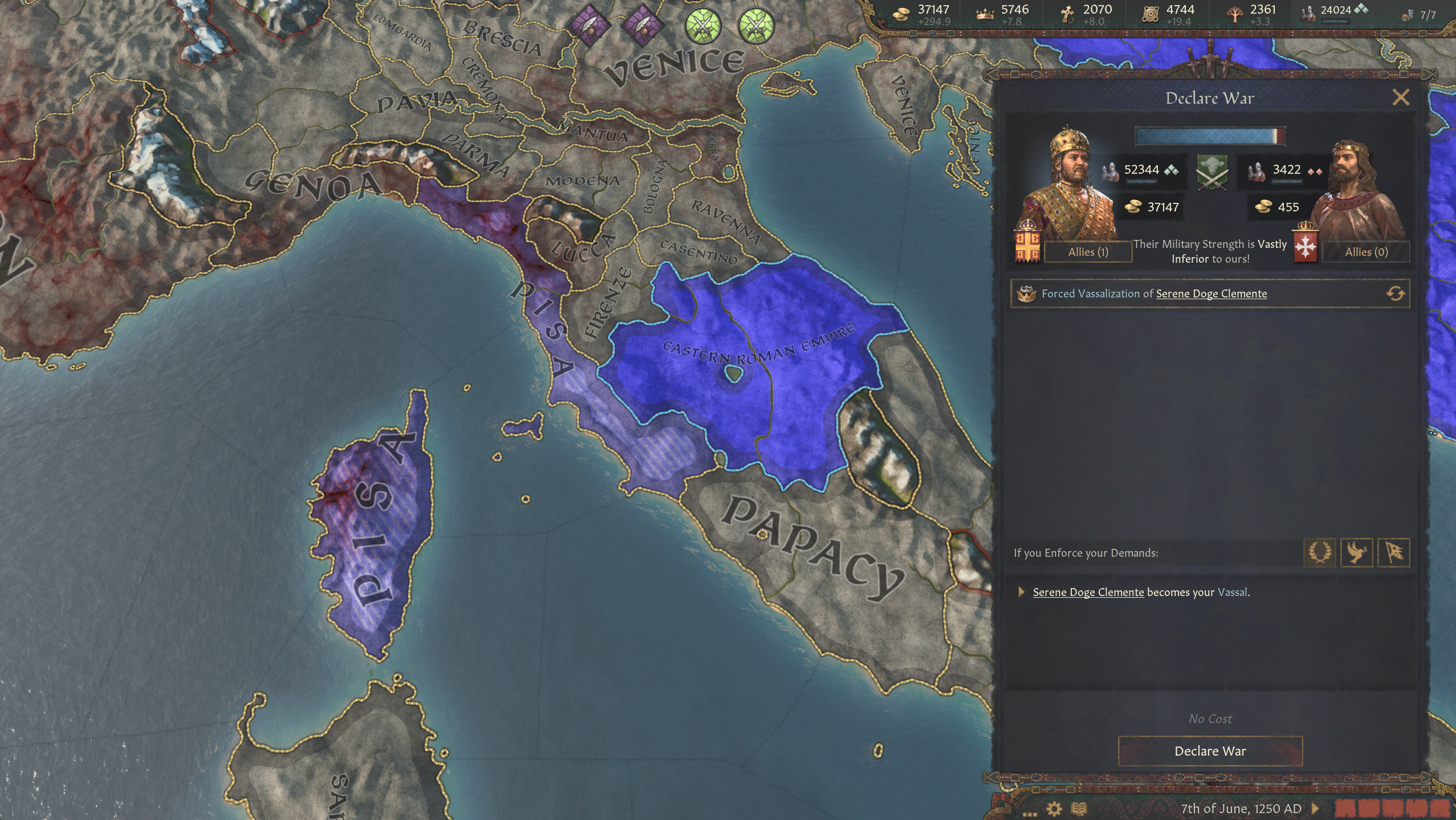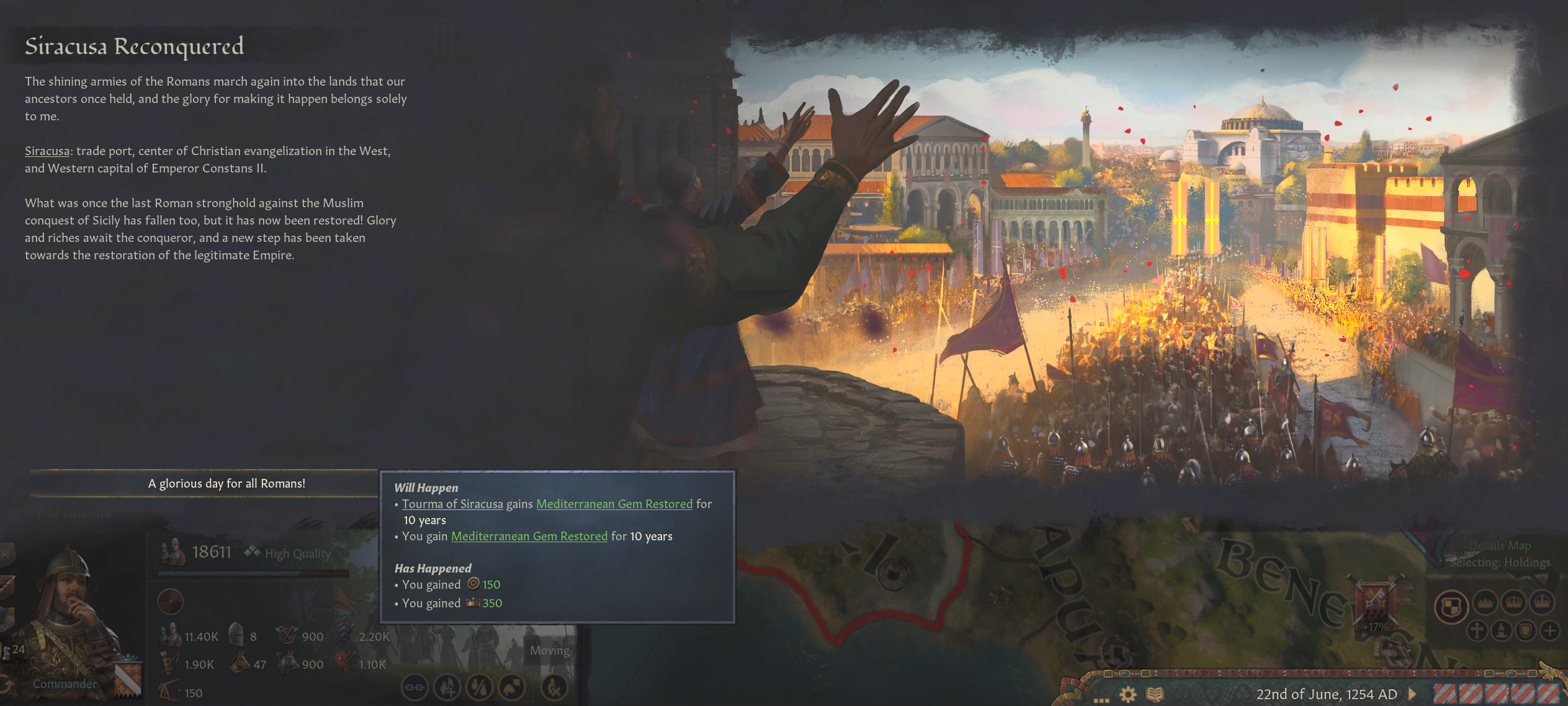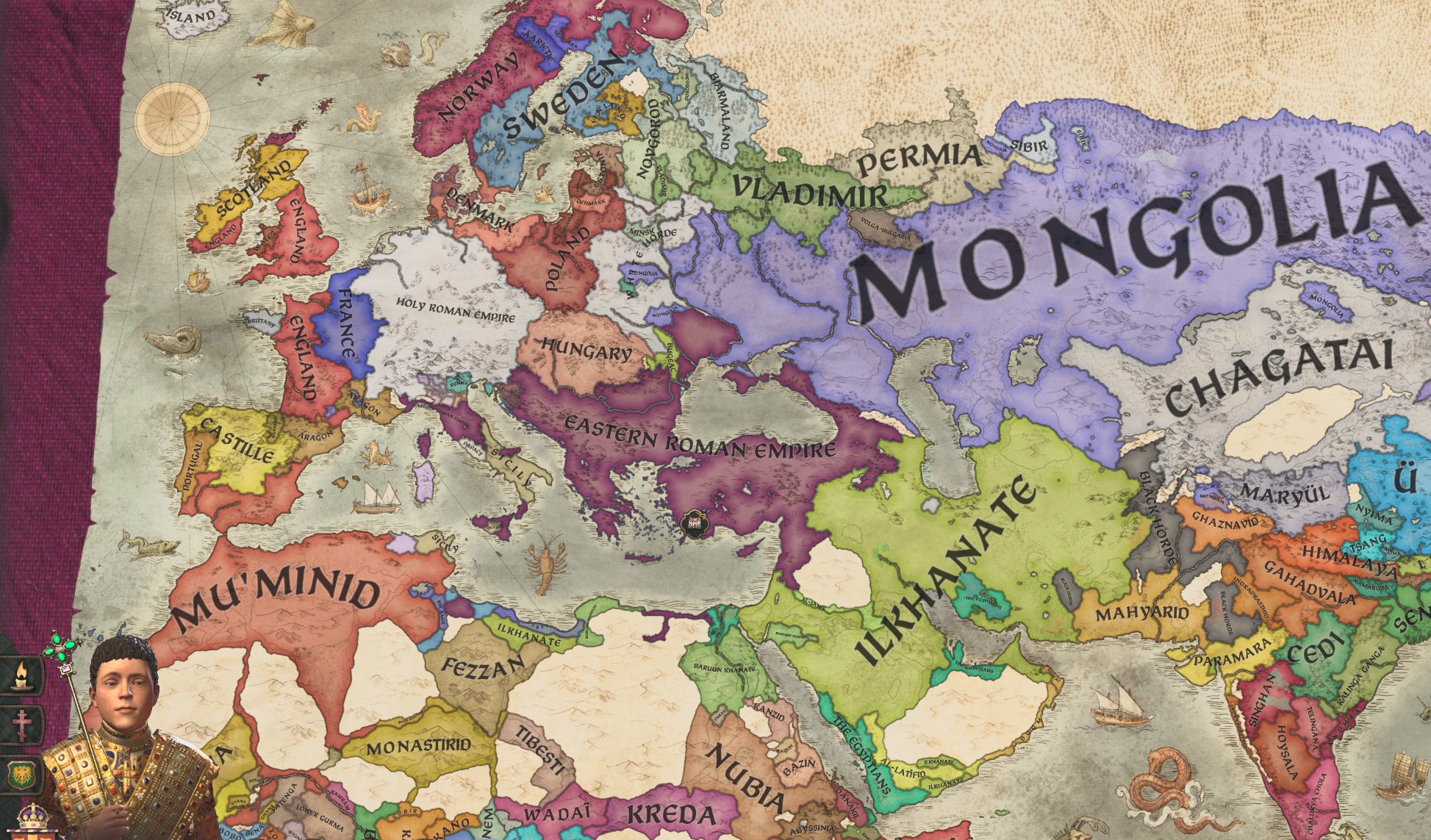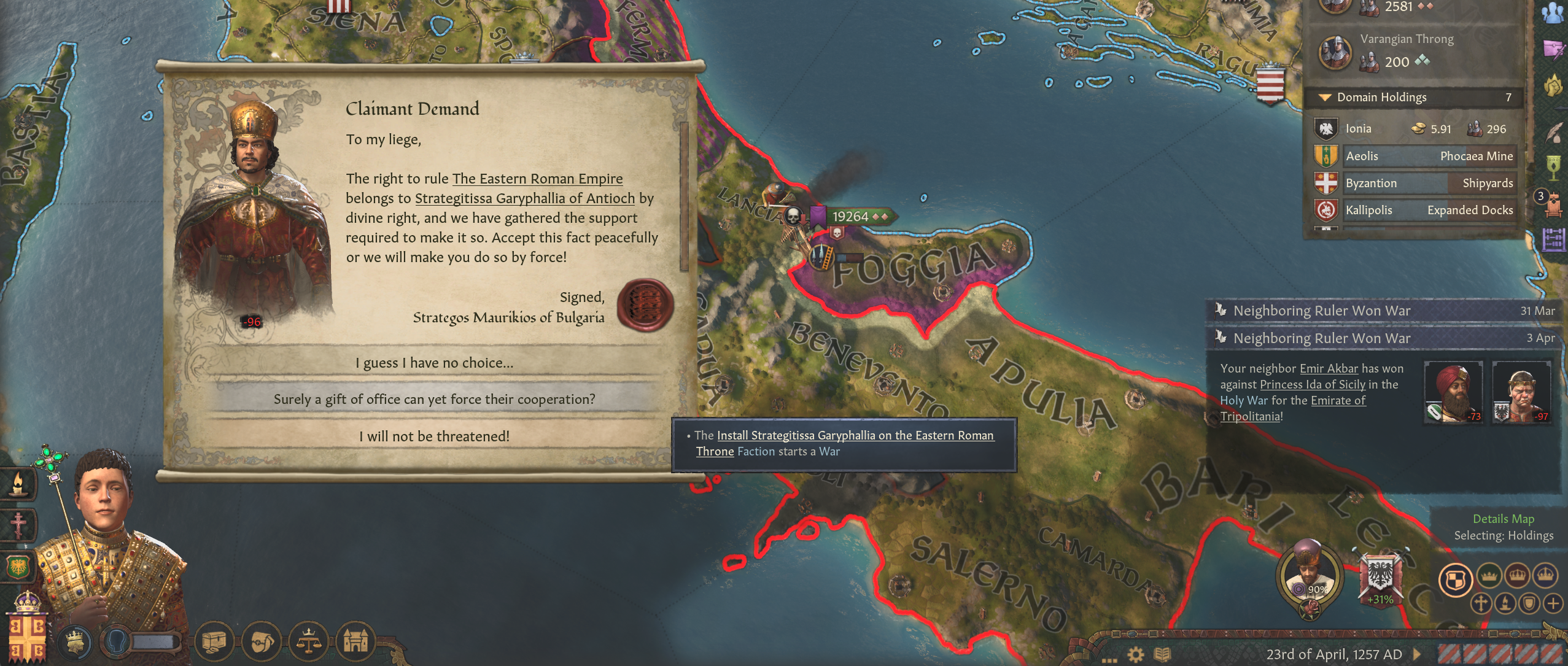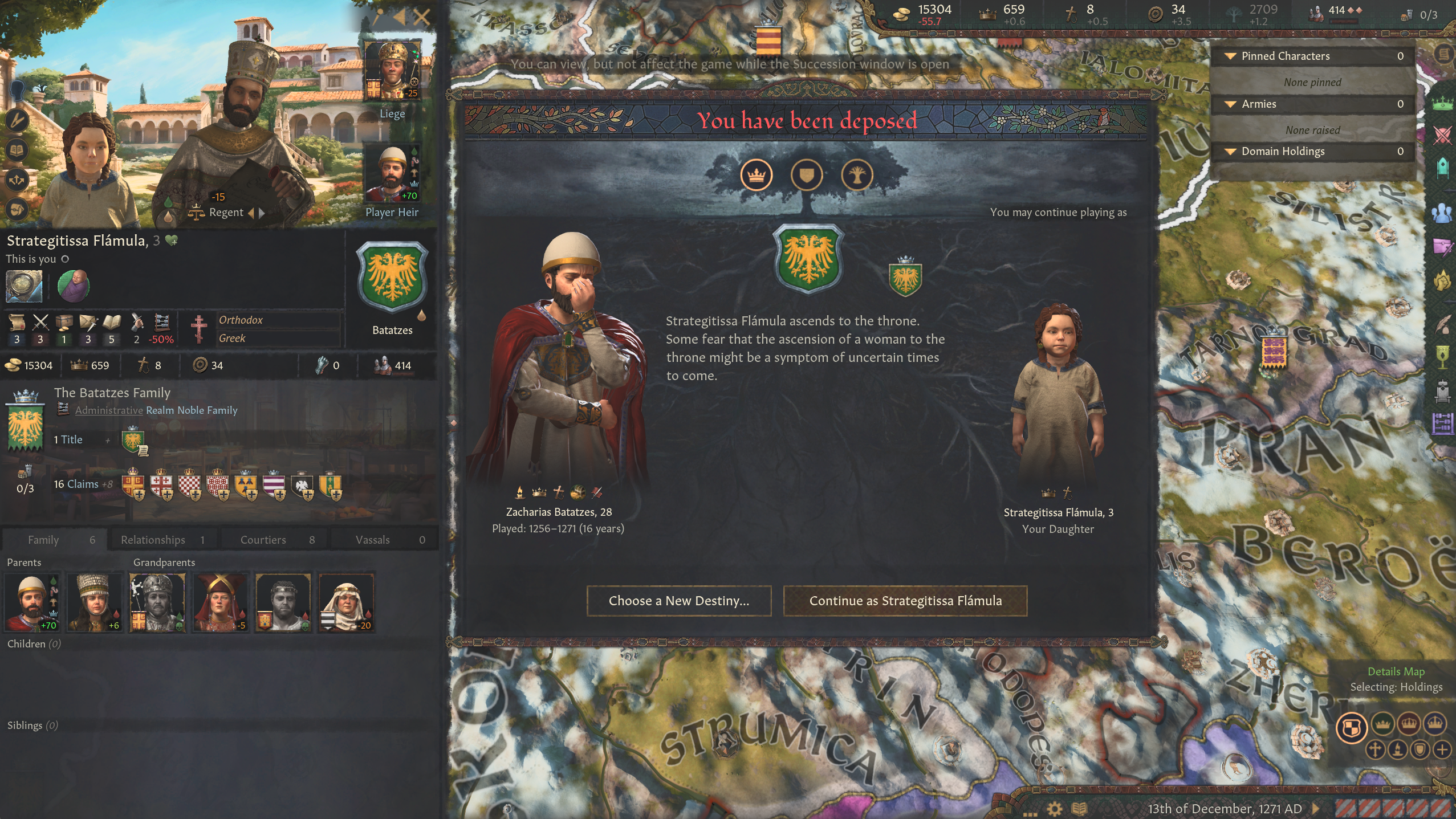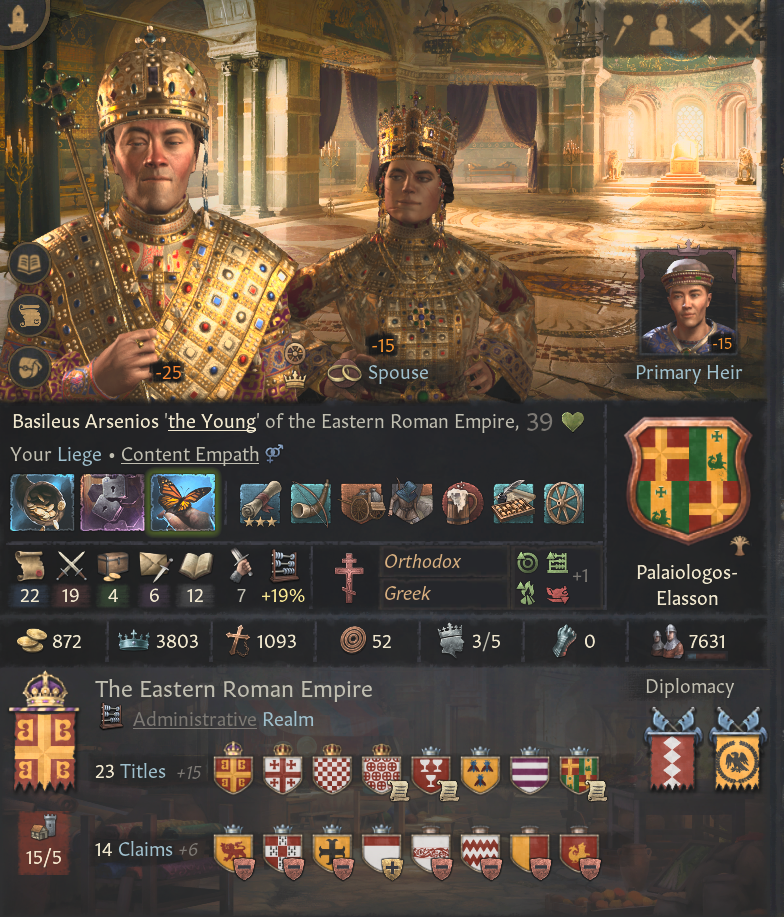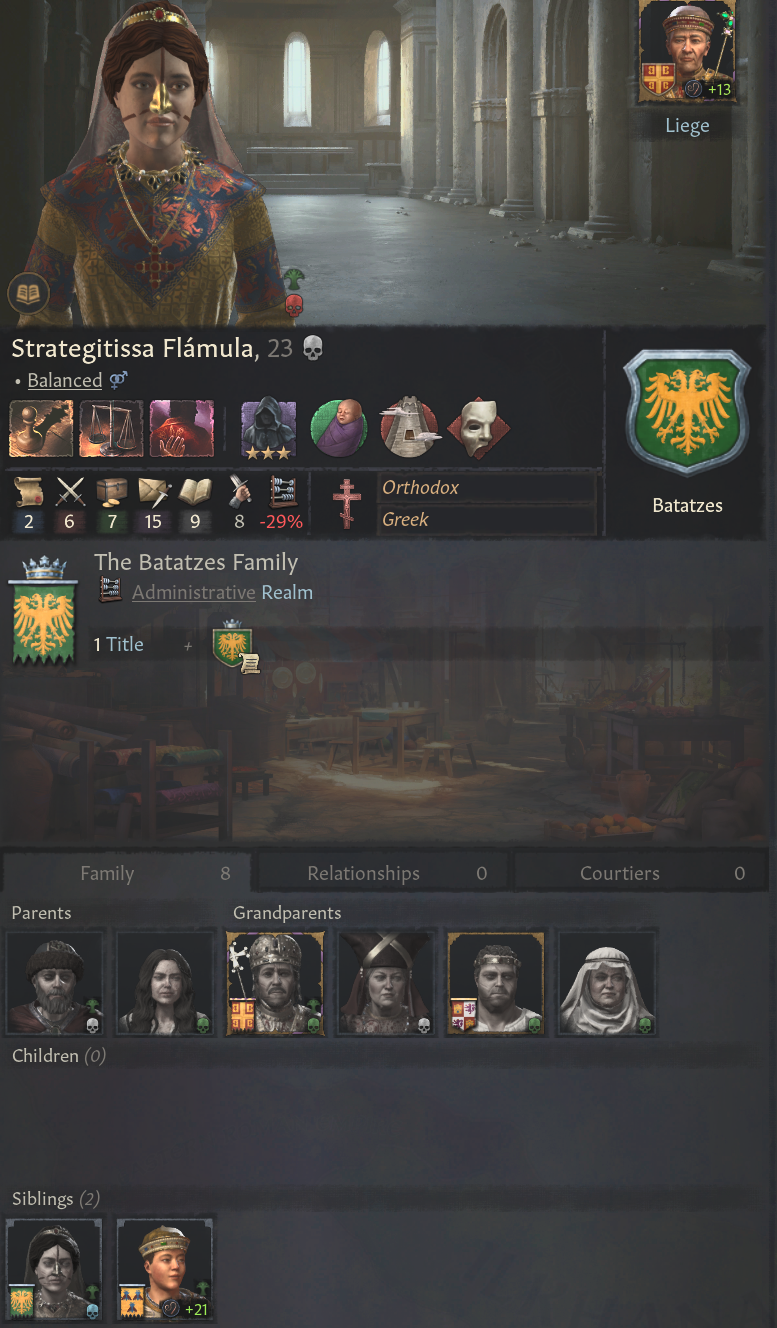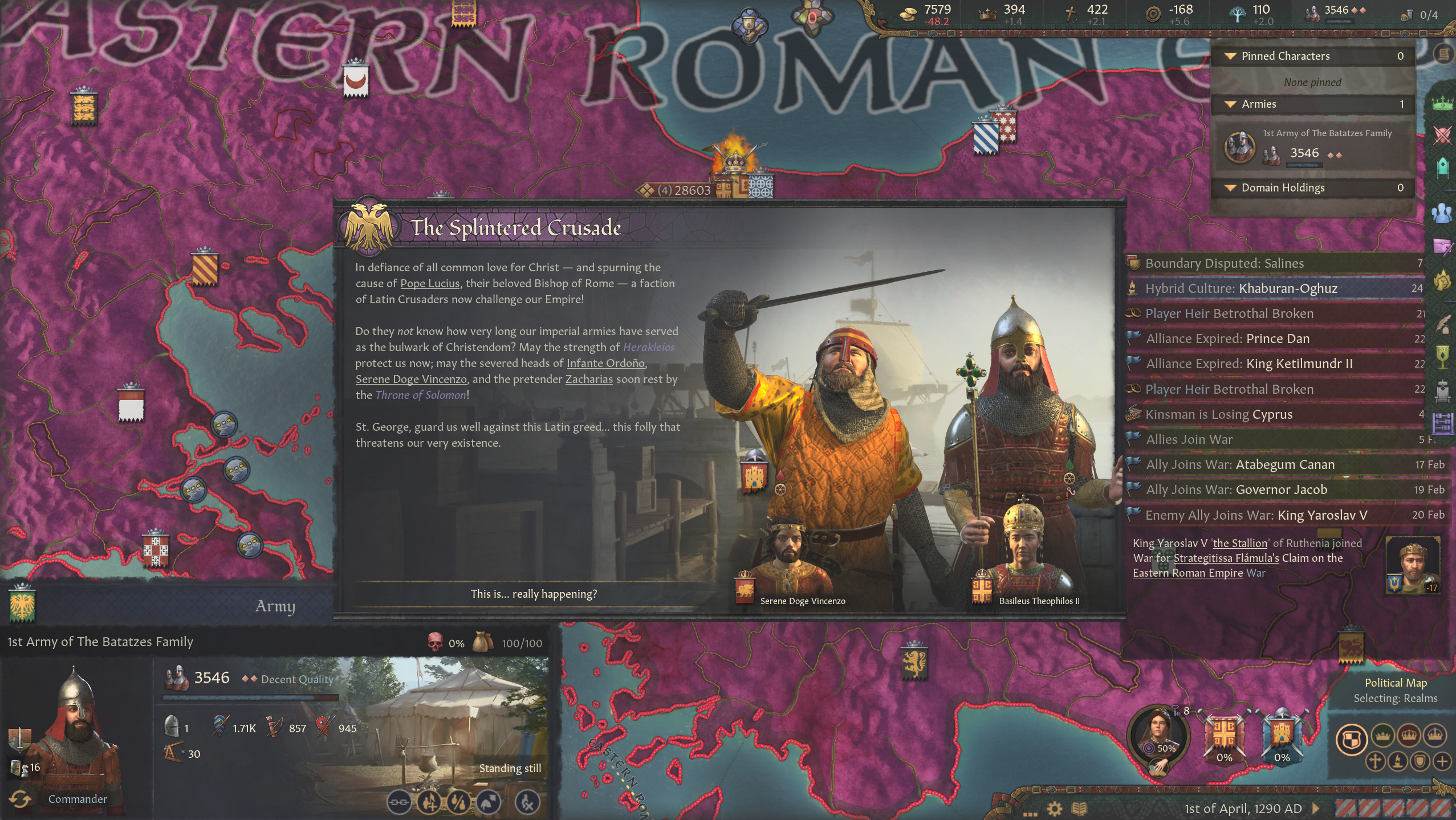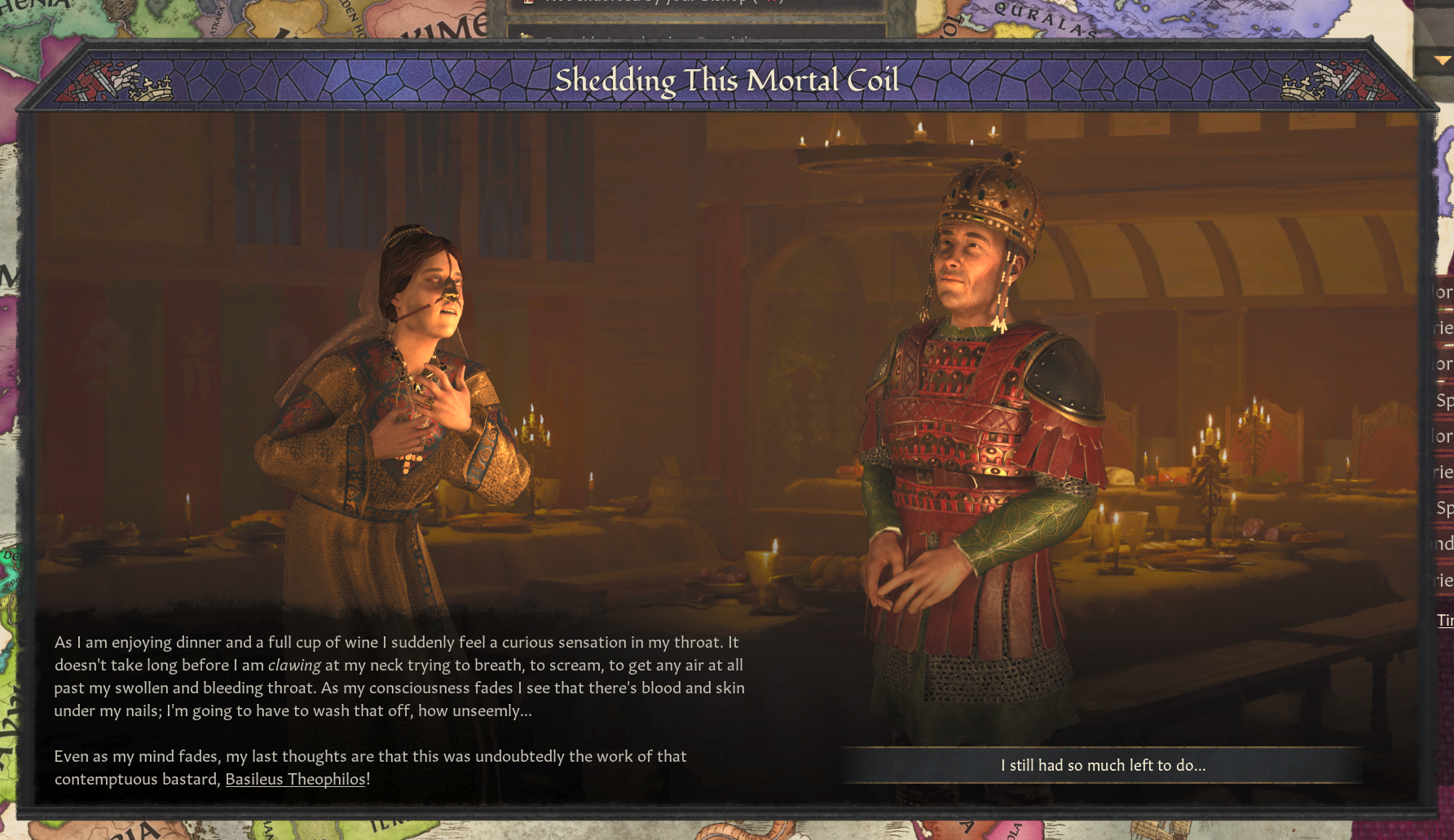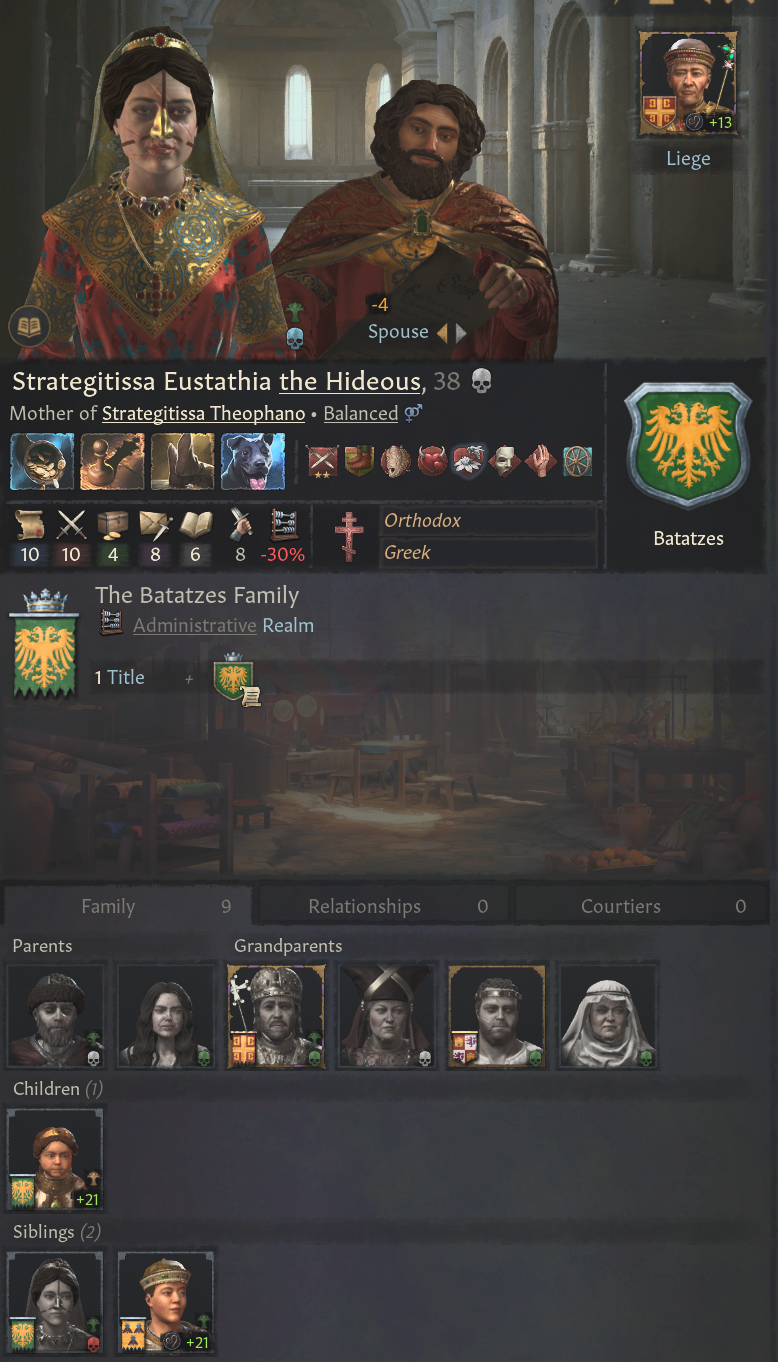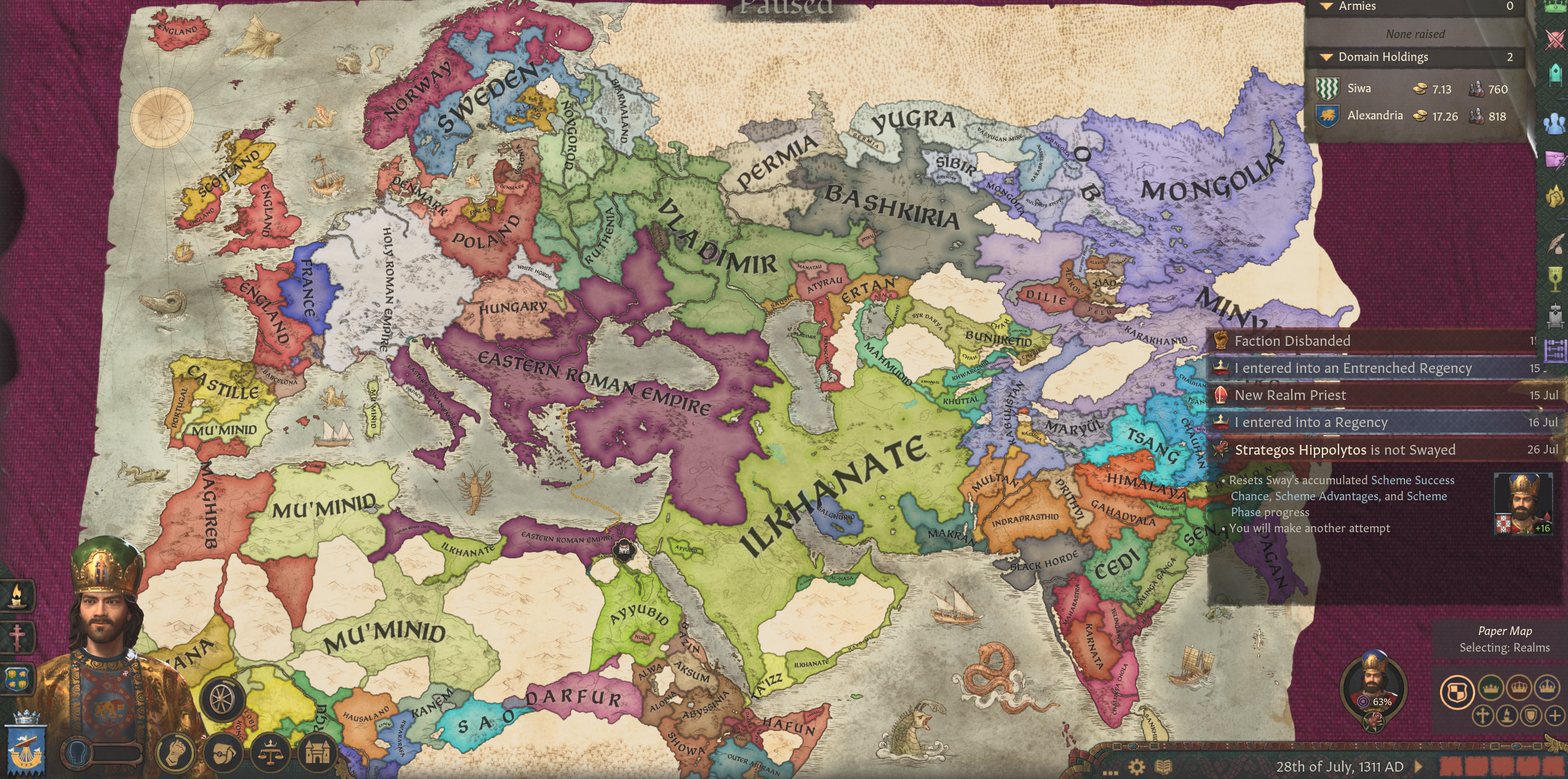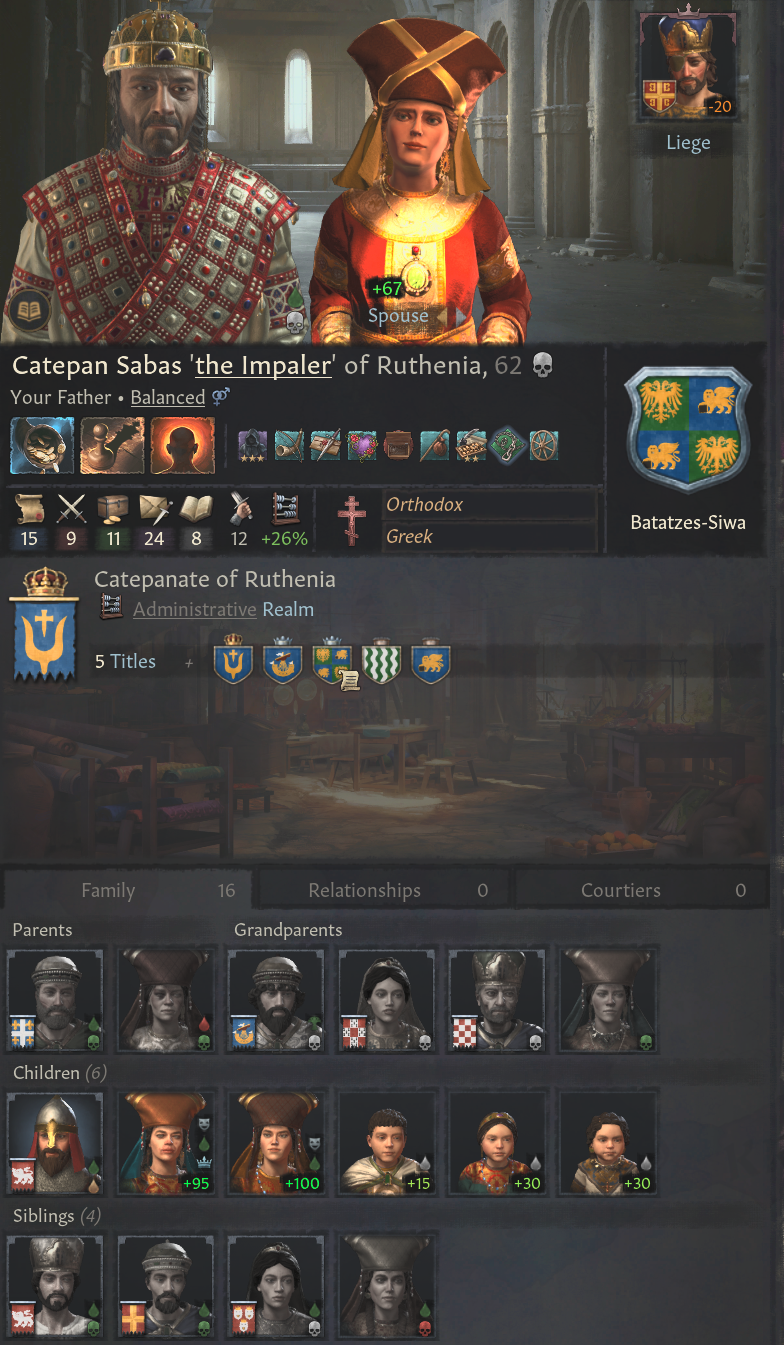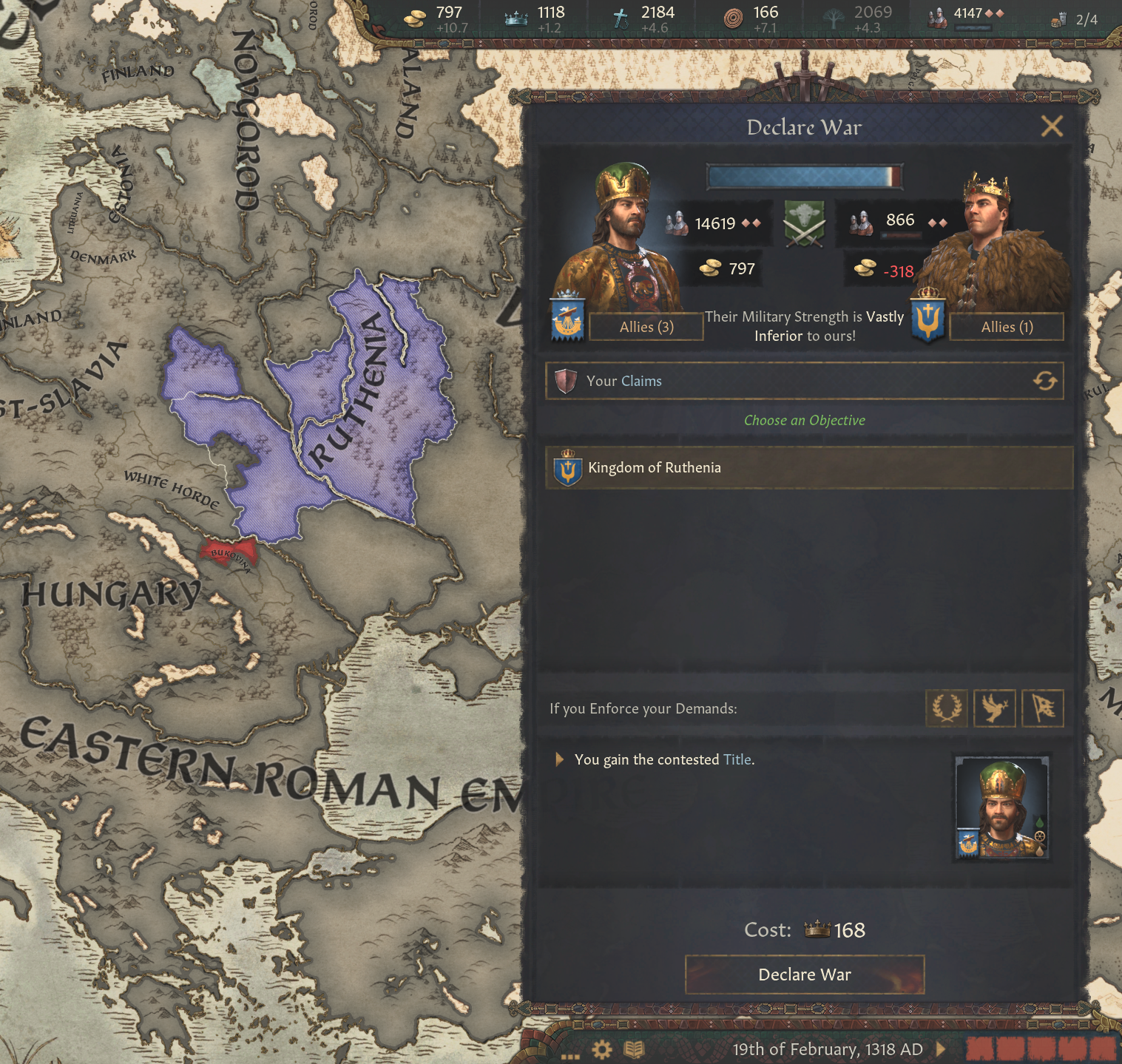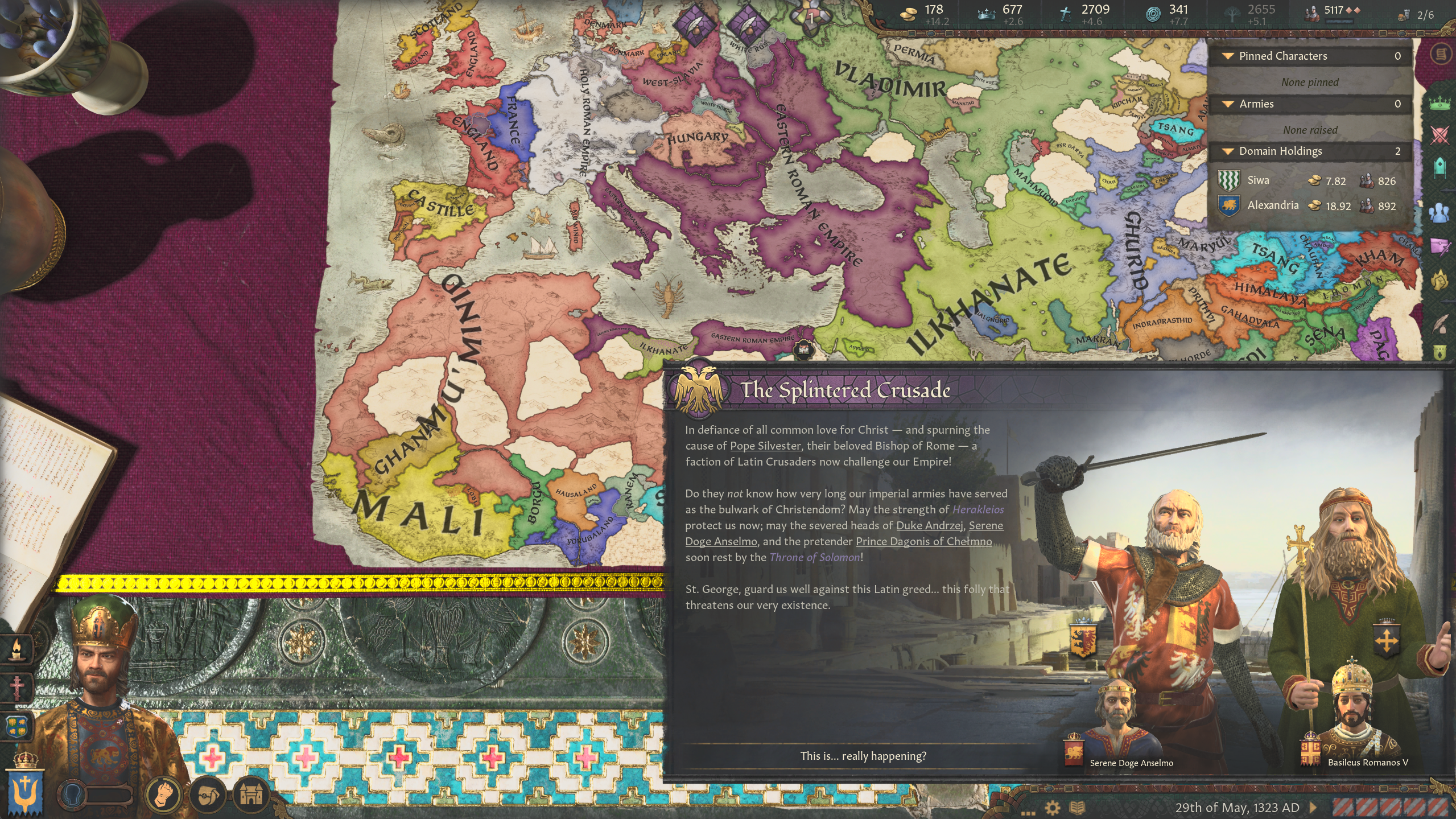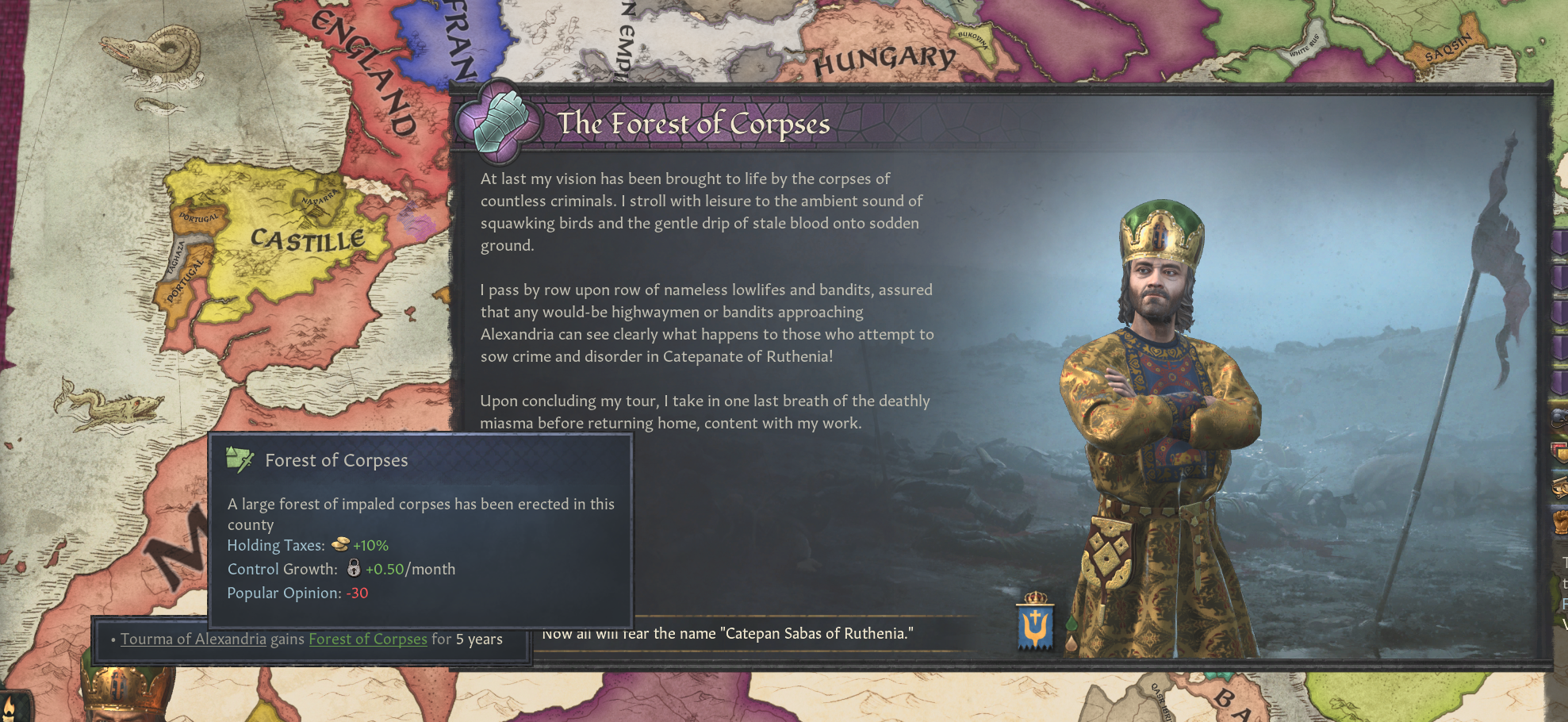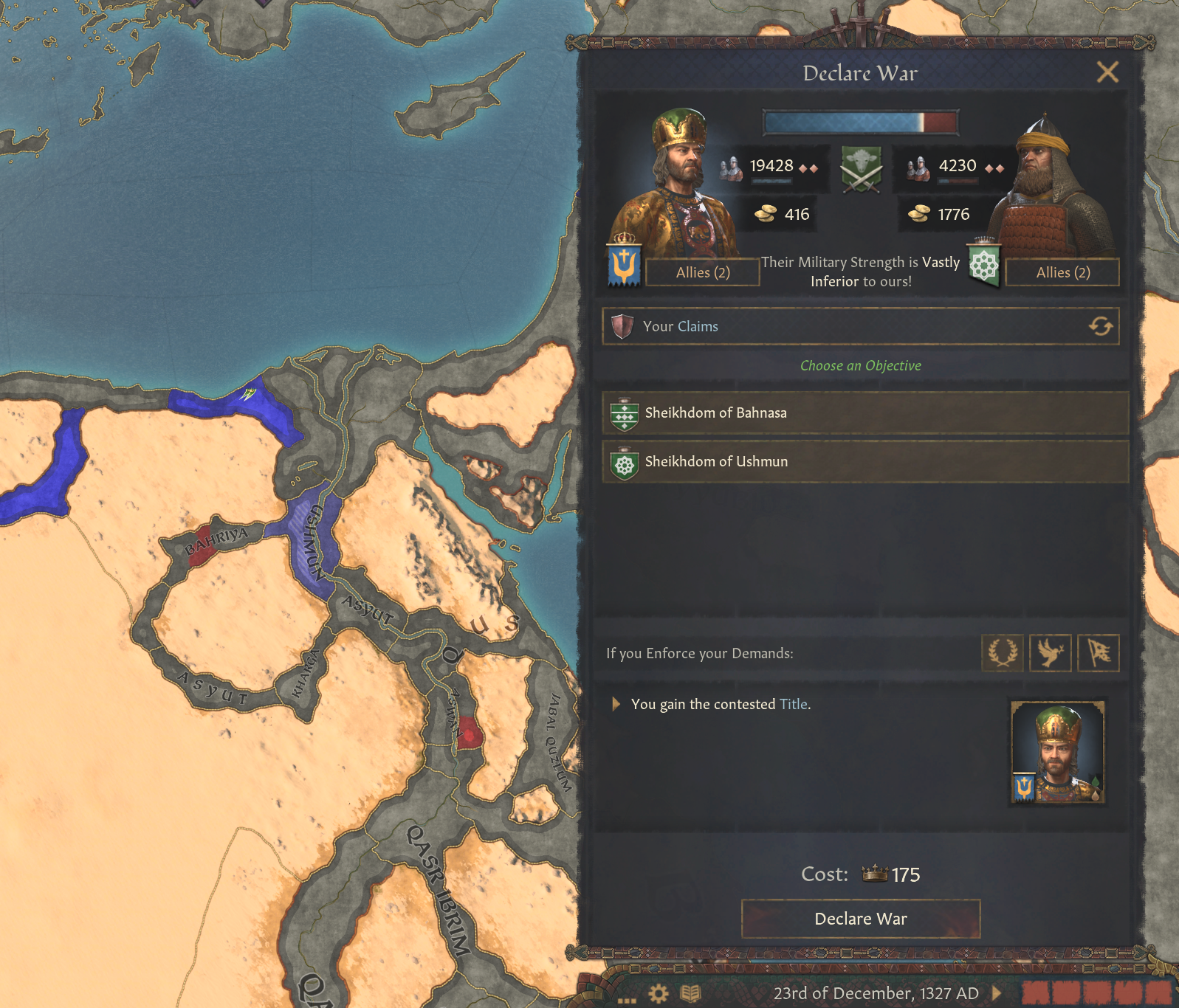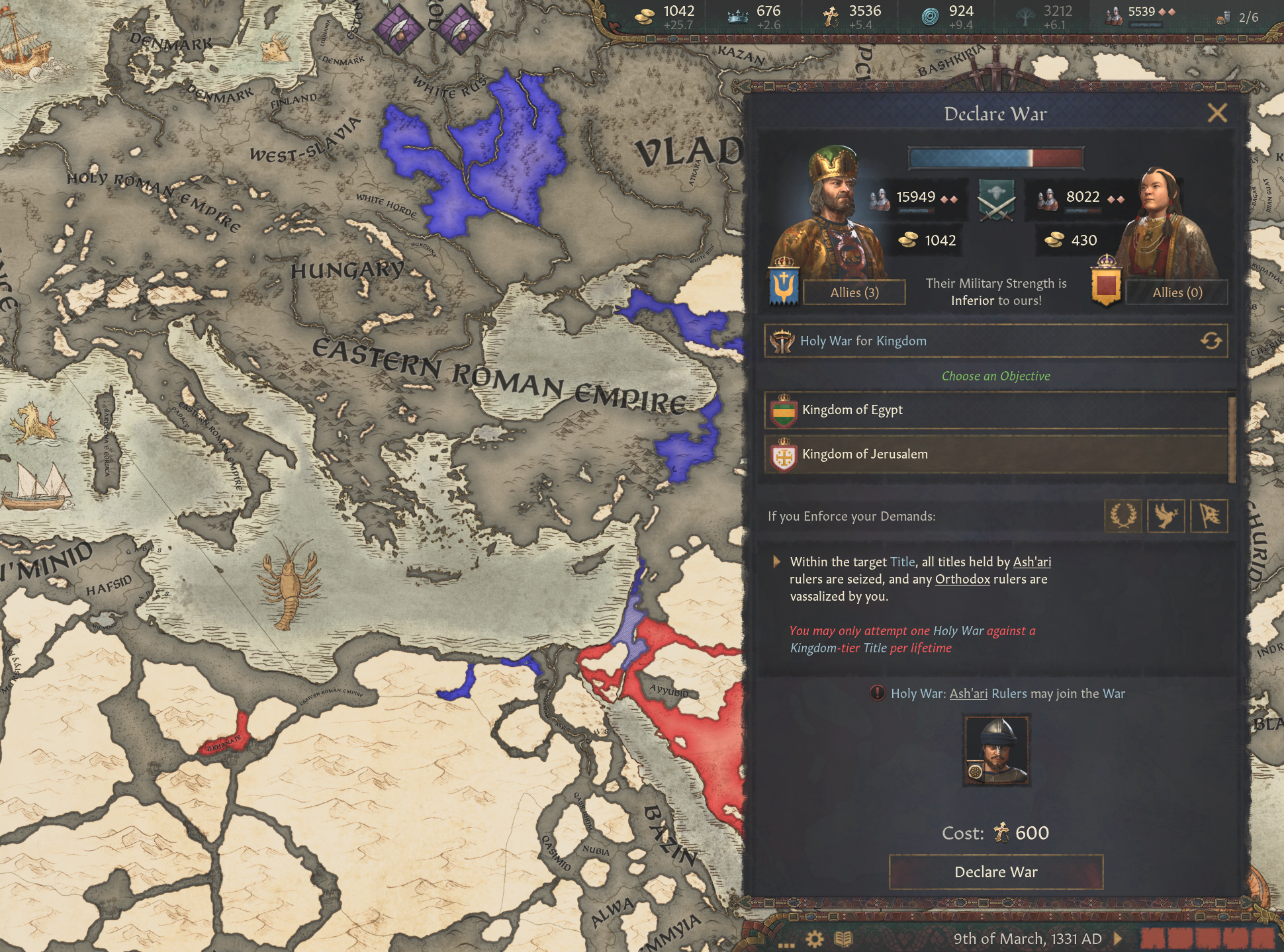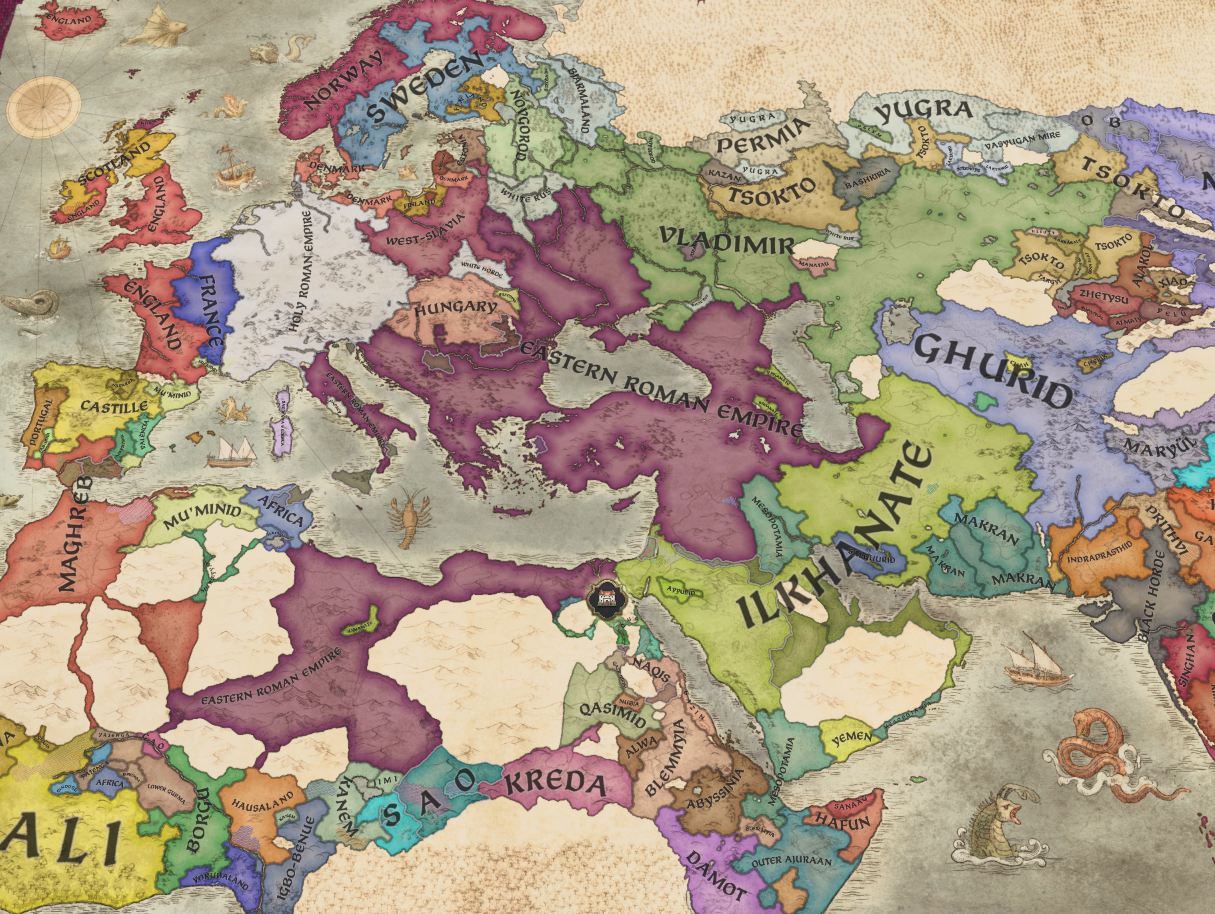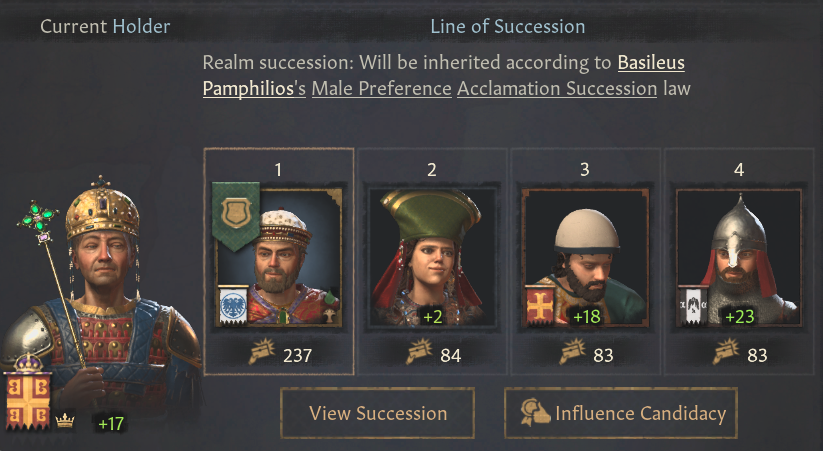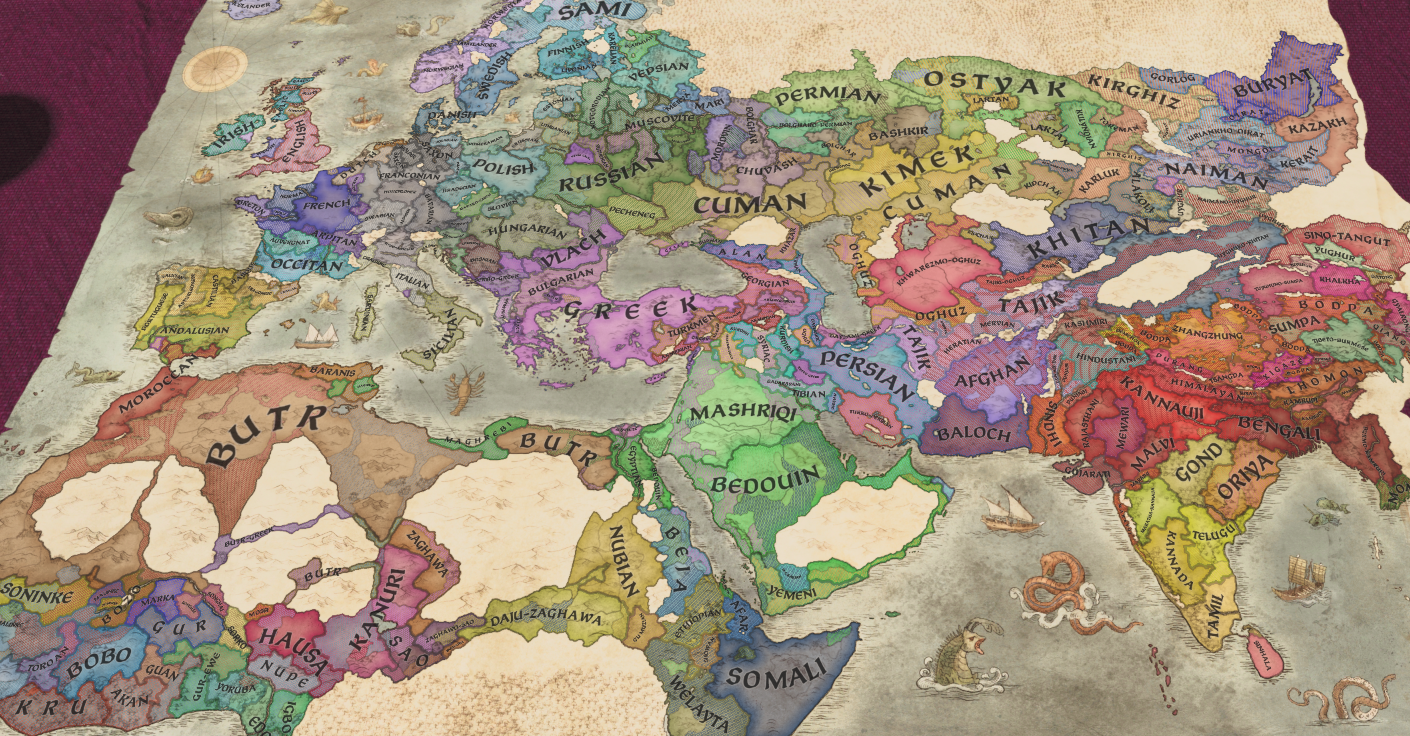The Reign of Strategos Ioannes of Ephesos (1178-1189)

As 1178 dawned, Strategos Ioannes Batatzes of Ephesos and Phillippopolis was already a man in his middle age. At 46 years of age, and a much younger Basileus on the throne, it seemed like Ioannes’ lot in life was to be a man guarding the borders of the Eastern Roman Empire against the vile Sultanate of Rum, a man of semi-importance at best, leader of a dynasty of semi-importance.

(Eastern Rome and her neighbors in 1178)
Ioannes had ambitions, though. To secure his dynasty, he married himself and his only son and heir to members of two Russian principalities, thus getting powerful allies for himself. Of larger importance is the trip he took to Constantinople in the early months of 1178. There he petitioned the reigning Basileus for primacy for his family in appointment for the theme of Ephesos, basically making his dynasty almost assured continued control of the theme for 100 years onwards. The Basileus deeply respected Ioannes, seeing him as close to a friend a Basileus could have.

(The Roman themes and neighboring Rum in 1178)
The years after this success, Ioannes used his income to greatly enlarge both his personal retinue as well as the theme’s retinue, making him one of the most powerful strategoses in the realm. He also began his maneuvering towards the Imperial throne, as his friend the Basileus had died and the new Basileus was decidedly negatively leaning towards Ioannes and his house. It was an uphill battle though, as the Basileus had an adult son with much influence and power in his own right and thus great support for his claim should his sire die. For the next few years, Ioannis and the Basileus’ son were competing for the leading spot, and it was an open question who would win. Ioannis used his influence to badmouth the prince, but even with gossip lowering his candidacy score, it was a tight fight.

(A successful visit and petition!)
Meanwhile the Basileus decided to stop Ioannis from expanding into the sultanate of Rum, which he bordered and which Ioannis indeed planned to invade with his ever increasingly strong retinue. Should the Basileus win this war, expansion into Muslim lands would be effectively stopped for Ioannis.
Thankfully for the strategos, the Basileus’ war went poorly and dragged on inconclusively for several years. This fact Ioannis used to badmouth his sovereign, advocating for that if he were to rule, the war would be brought to a satisfactory end.

(Ioannis has mighty troops and mighty allies, although they were far off)
In 1187, the war was finally lost by the Basileus, and Ioannis immediately raised his banners for war, marching into Rum for a slice of border lands. Two huge battles were fought, both in which Ioannis were numerically inferior, but the quality and strength of his troops won the day, slaughtering thousands of Muslim troops. In the second battle, the Sultan was even captured and forced to sign a humiliating peace.

(The despicable Basileus Alexios II required more from his most successful vassal)
This success of course strengthened the ageing strategos’ claim for the throne and the reigning Basileus hated him even more. Soon after the victory, an emissary telling Ioannis that his liege required more from him, increasing his vassal obligations, arrived.
Ioannis did not fret though, for he knew the Basileus was sick, and he was not – although he was old, which was a danger in and of itself. And so, on December 8th, 1189 the Basileus died of his illness. And Ioannis was declared Basileus Ioannis III, rightful ruler of the Romans.

As 1178 dawned, Strategos Ioannes Batatzes of Ephesos and Phillippopolis was already a man in his middle age. At 46 years of age, and a much younger Basileus on the throne, it seemed like Ioannes’ lot in life was to be a man guarding the borders of the Eastern Roman Empire against the vile Sultanate of Rum, a man of semi-importance at best, leader of a dynasty of semi-importance.

(Eastern Rome and her neighbors in 1178)
Ioannes had ambitions, though. To secure his dynasty, he married himself and his only son and heir to members of two Russian principalities, thus getting powerful allies for himself. Of larger importance is the trip he took to Constantinople in the early months of 1178. There he petitioned the reigning Basileus for primacy for his family in appointment for the theme of Ephesos, basically making his dynasty almost assured continued control of the theme for 100 years onwards. The Basileus deeply respected Ioannes, seeing him as close to a friend a Basileus could have.

(The Roman themes and neighboring Rum in 1178)
The years after this success, Ioannes used his income to greatly enlarge both his personal retinue as well as the theme’s retinue, making him one of the most powerful strategoses in the realm. He also began his maneuvering towards the Imperial throne, as his friend the Basileus had died and the new Basileus was decidedly negatively leaning towards Ioannes and his house. It was an uphill battle though, as the Basileus had an adult son with much influence and power in his own right and thus great support for his claim should his sire die. For the next few years, Ioannis and the Basileus’ son were competing for the leading spot, and it was an open question who would win. Ioannis used his influence to badmouth the prince, but even with gossip lowering his candidacy score, it was a tight fight.

(A successful visit and petition!)
Meanwhile the Basileus decided to stop Ioannis from expanding into the sultanate of Rum, which he bordered and which Ioannis indeed planned to invade with his ever increasingly strong retinue. Should the Basileus win this war, expansion into Muslim lands would be effectively stopped for Ioannis.
Thankfully for the strategos, the Basileus’ war went poorly and dragged on inconclusively for several years. This fact Ioannis used to badmouth his sovereign, advocating for that if he were to rule, the war would be brought to a satisfactory end.

(Ioannis has mighty troops and mighty allies, although they were far off)
In 1187, the war was finally lost by the Basileus, and Ioannis immediately raised his banners for war, marching into Rum for a slice of border lands. Two huge battles were fought, both in which Ioannis were numerically inferior, but the quality and strength of his troops won the day, slaughtering thousands of Muslim troops. In the second battle, the Sultan was even captured and forced to sign a humiliating peace.

(The despicable Basileus Alexios II required more from his most successful vassal)
This success of course strengthened the ageing strategos’ claim for the throne and the reigning Basileus hated him even more. Soon after the victory, an emissary telling Ioannis that his liege required more from him, increasing his vassal obligations, arrived.
Ioannis did not fret though, for he knew the Basileus was sick, and he was not – although he was old, which was a danger in and of itself. And so, on December 8th, 1189 the Basileus died of his illness. And Ioannis was declared Basileus Ioannis III, rightful ruler of the Romans.
- 6
- 3












